COZ



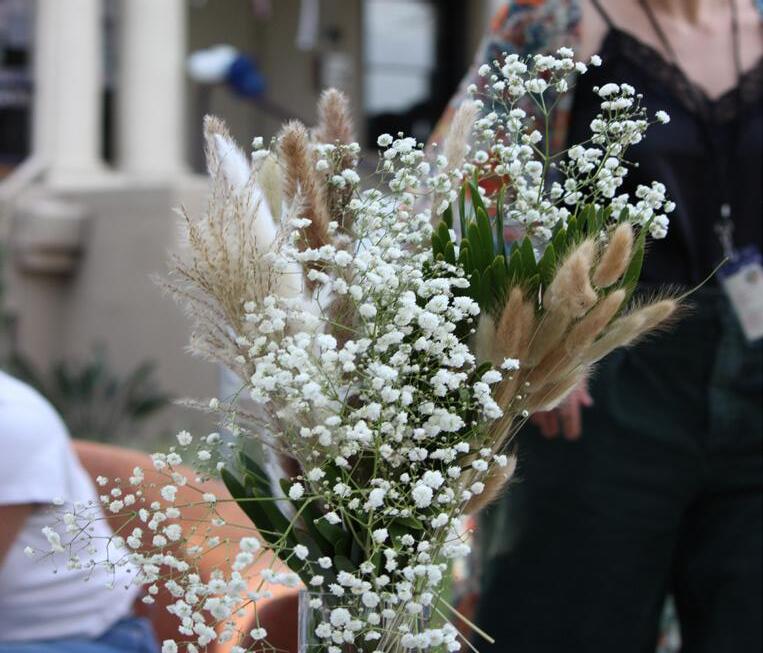
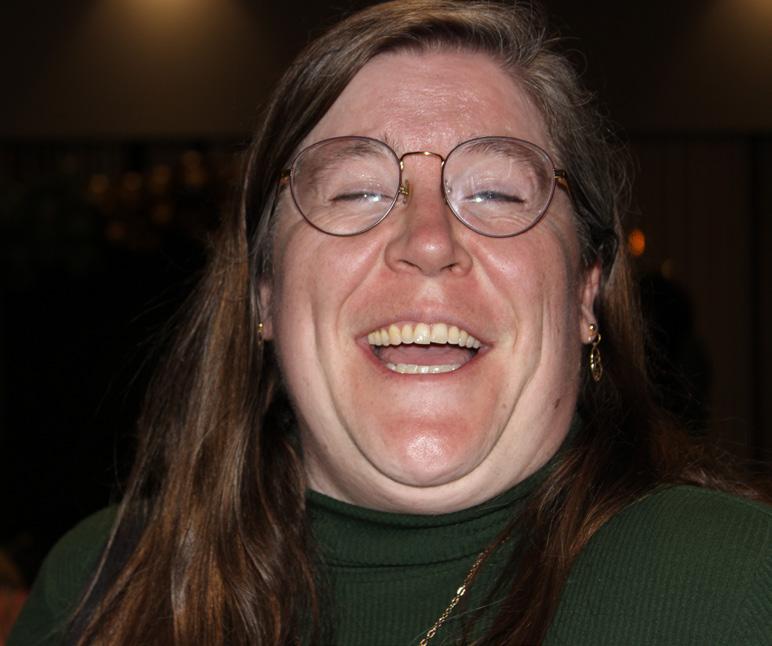
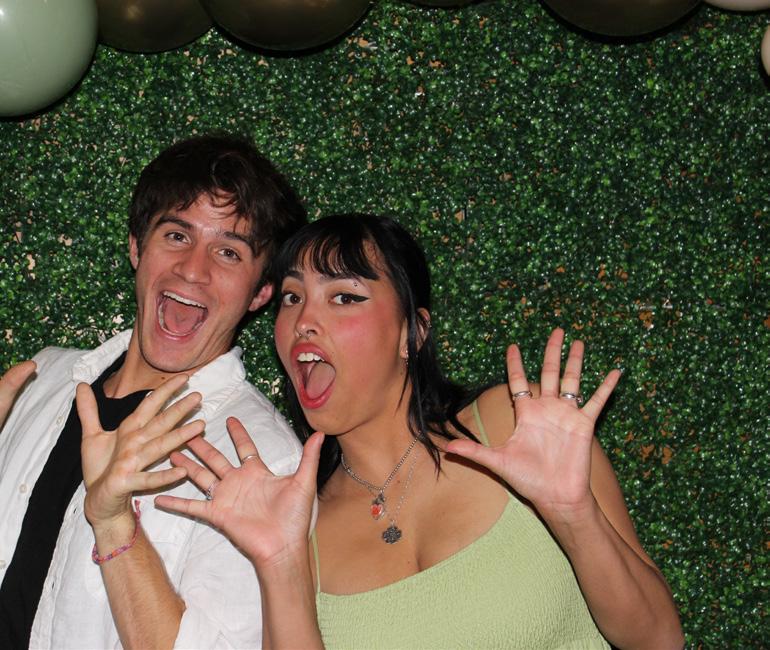
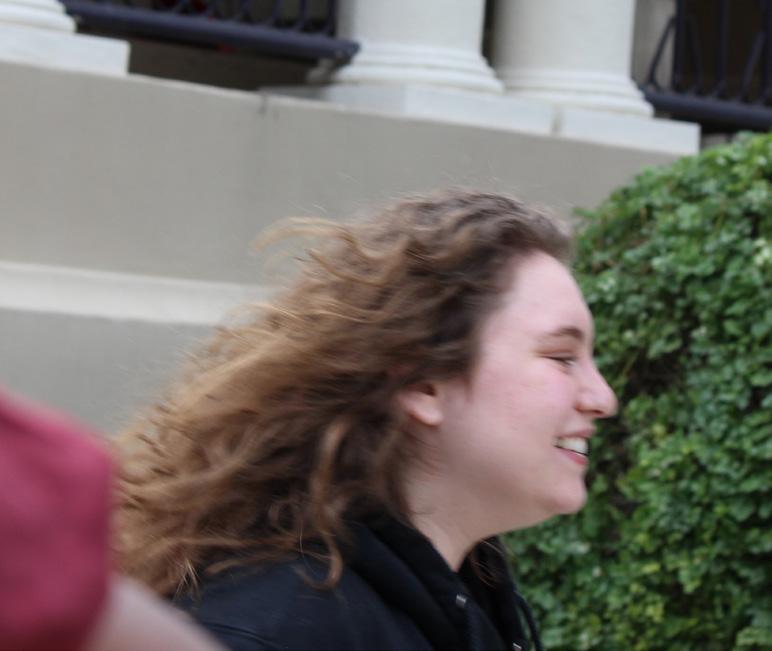
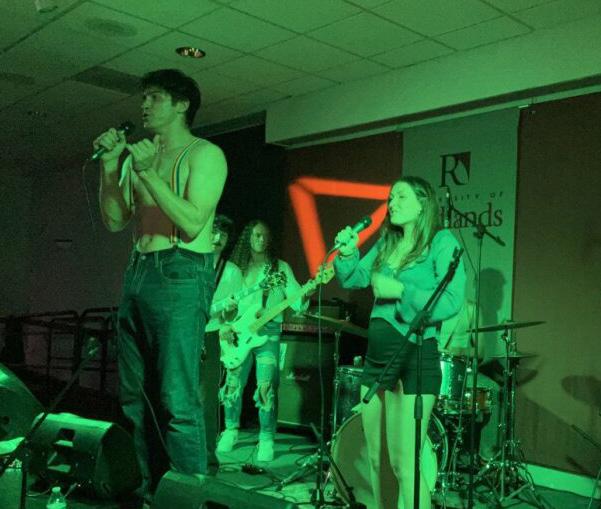
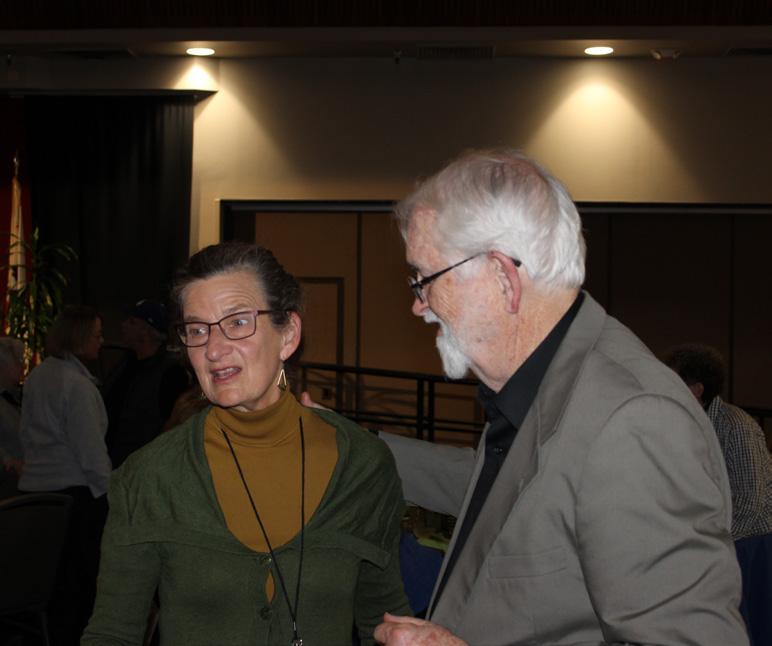
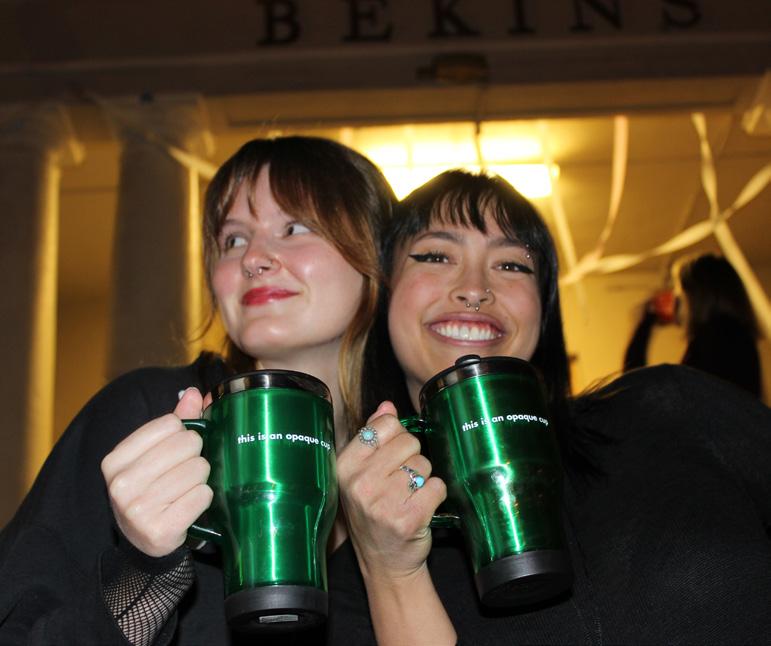
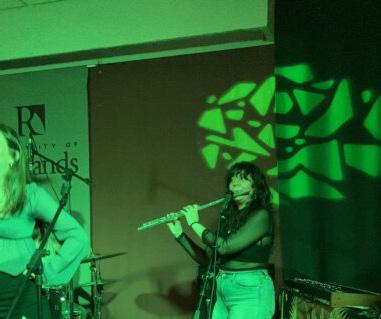
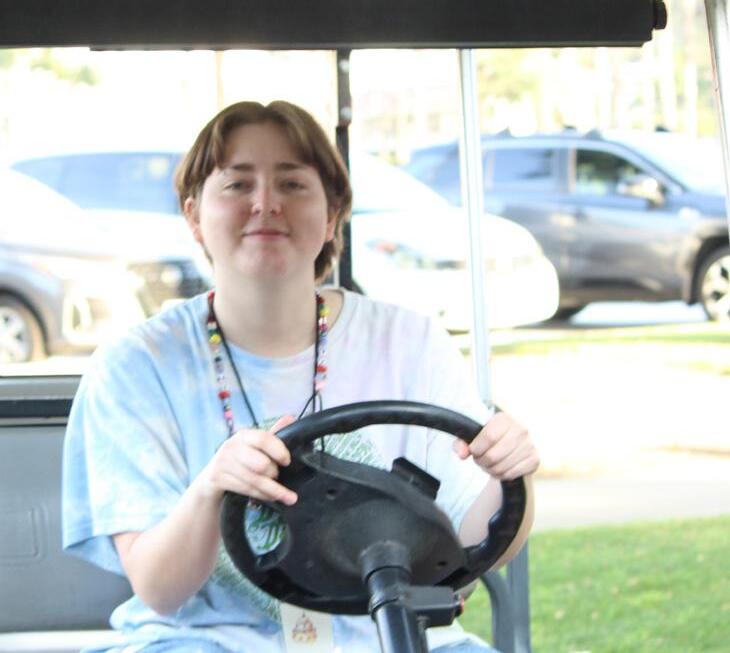
It was such a pleasure to meet so many of you, people I’ve known for almost 25 years and others I met for the first time, at our 55th Renewal this February. Many of the activities are recollected in the pages of this issue of the CozMcnooz. If you were able to attend in person or virtually, you’ll recognize the by turns serious, silly, and sacred time we had. If you were not able to participate, I hope you enjoy stories and images from our weekend. Other goings-on in Johnston have focused on graduating out seniors, helping them land internships, jobs, educational opportunities, and more upon graduation. We’ll host Johnston Commencement on Wednesday, April 24th, at 4:30 in front of Bekins. All are welcome to join.
In the pages that follow, you’ll also hear about many of the exciting May Term courses we offered last year, be introduced to our new Operations Specialist, hear reflections from students currently teaching courses (one of our long-standing traditions that we cherish and support), and learn from one senior about her planning and leadership for the annual Asian Student Association Night Market. Johnston students continue to challenge the Center and University to be more inclusive and student-centered, craft unique emphases that build and shape knowledge in profound ways, and much more. As we continue to rebuild the connective tissue crucial to keeping a living-learning community thriving in a higher education landscape that is, at best, challenging, I continue to learn from students how to make education respectful of Johnston’s traditions and legacies, and also adaptive to new demands and horizons.
A note on communications with you: based on feedback during the Renewal, we have identified one major area that we can do better, namely, in sharing with you the happenings of Johnston. In addition to the Coz, which will move to an annual production timeline, we will be sending three Community Newsletters annually at the start of the academic year (early September), at the beginning of the Spring semester, and after commencement. We hope that this allows you to have insight into what is happening, and provide opportunities for you to share your perspectives in a more regular way.
Thank you, again, for your sustained and ongoing support of our mission, and I do hope to see you again before Renewal 60, already scheduled for February 16-18, 2029.
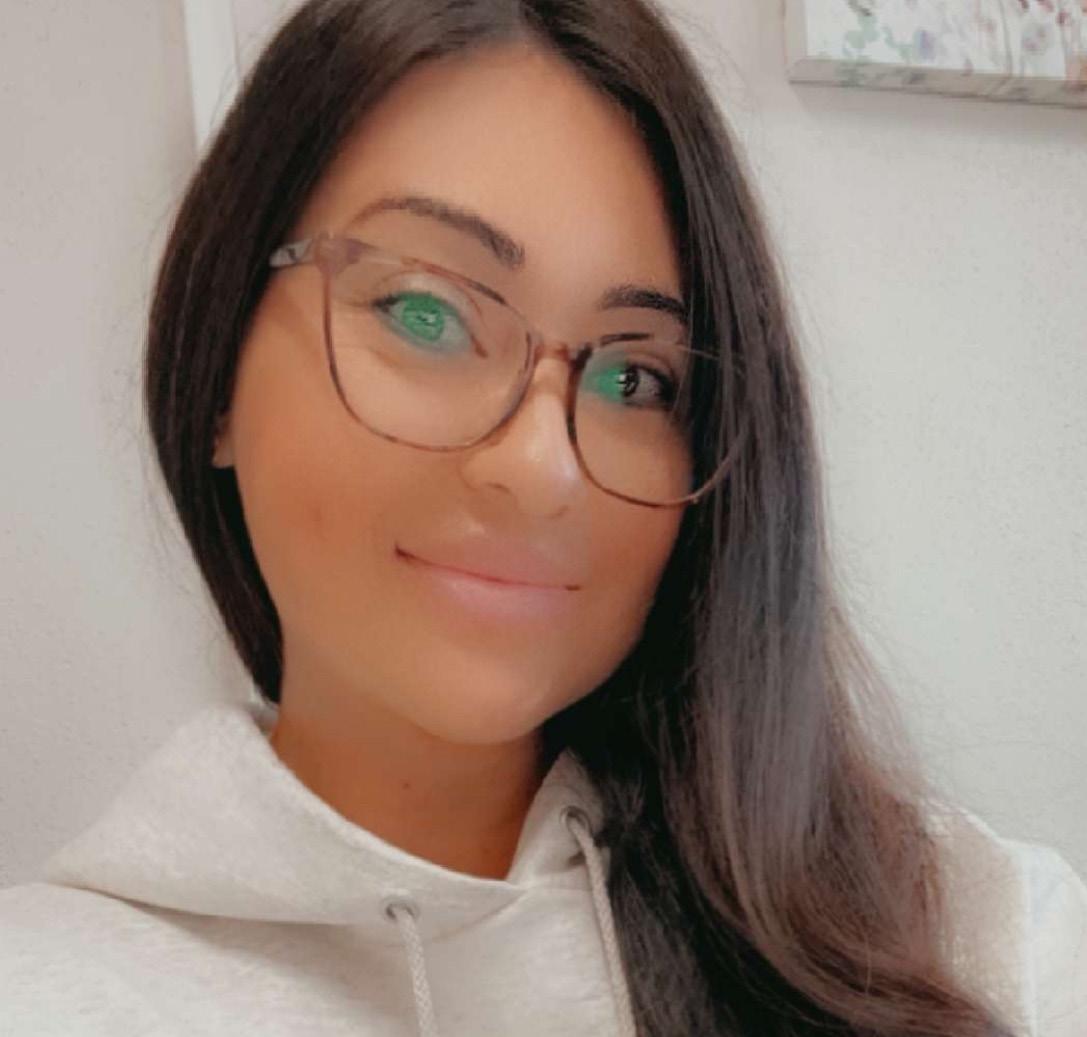
My name is Jeanette Guerra, and I’m the new Johnston Operations Specialist. I’ve been a part of the Johnston team since October and am grateful for the numerous warm welcomes I have gotten from the very beginning.
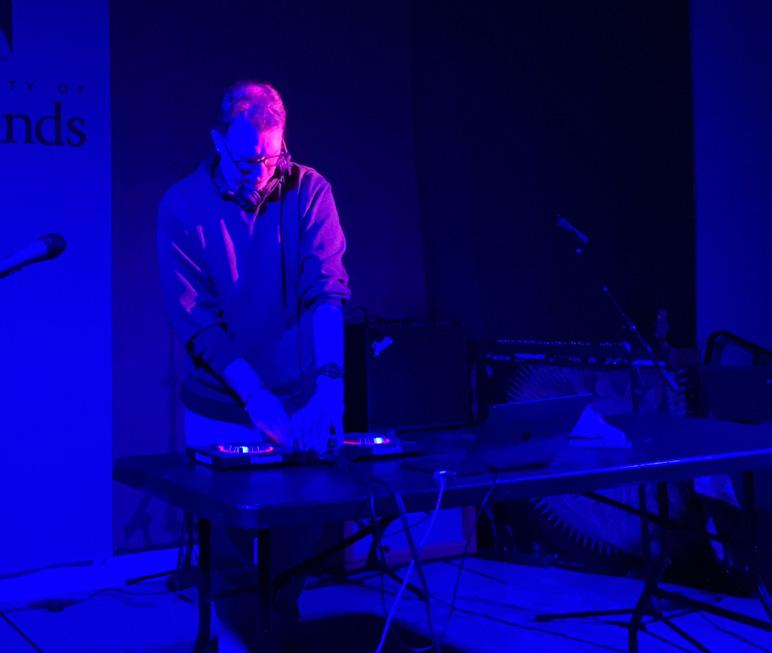
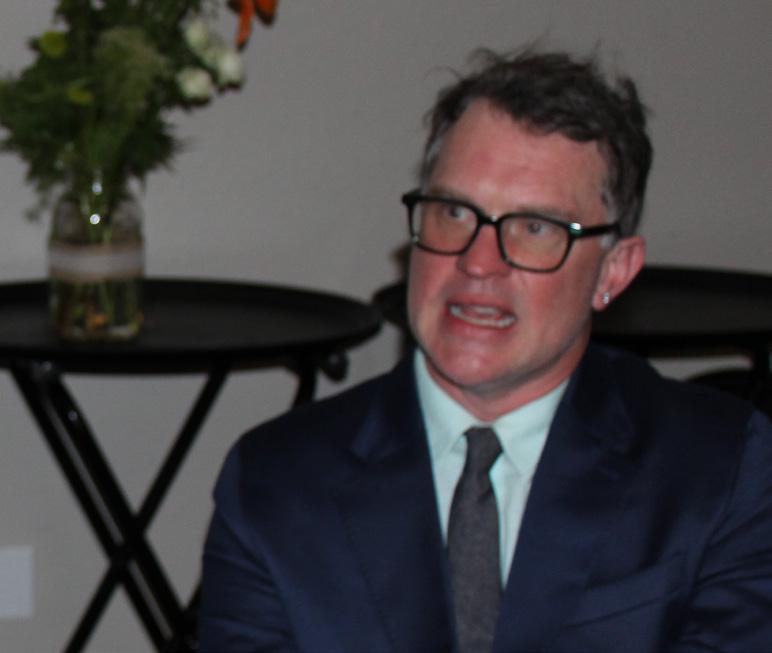
I had been in search of a position that would allow me to work with students, and I think I hit the jackpot here. Whether they are seeking a place to complete their work or a place to eat my chocolates, I am constantly surrounded by amazing students who truly brighten my day. The sense of belonging to something that is one of a kind is one of the characteristics that sets Johnston apart from other places on campus. Coming here has been incredibly fulfilling for me, and I’m excited about what lies ahead as I continue my Johnston journey.
Some interesting things about my time at Johnston:
-I’ve had the opportunity to help plan three big events in the past six months: Vintage, Johnston’s 55th Renewal, and the ongoing Commencement party!
-I’m especially excited about Commencement because I can’t wait to cheer on our graduating seniors as they begin their next chapter.
This semester I facilitated a class called Deconstructing the Romantic Comedy, and it was an extremely rewarding experience. We watched and discussed a range of romantic comedies from the 1990s to early 2000s, focusing on their tropes, world visions, effectiveness, marketing, and representation. Some of the films we especially enjoyed discussing include Groundhog Day, High Fidelity, and Love & Basketball.
HARPER OBSTFELD, JC ‘24
Instructing of History of Dress: Culture, Construction, Controversy has been a wild ride! Dress history has been my main focus of study during my college career, and I have finally had the opportunity to share my passion with my peers. In the class, we have read and discussed dress history scholarship and controversies, from museum exhibitions to corsetry myths to the ethics of influencer fashion. Now, my students are working on recreating historical clothes using period techniques! I have learned a lot about teaching both history and sewing, and have got to read and experience a variety of creative student projects and writing.
ANATHEA
WOIRHAYE, JC ‘24This semester, I worked with Professor Bill McDonald to facilitate a course on rereading and reinterpretation of texts by 19th Century British Women Writers. We read prominent texts written by women in the 19th century, ranging from Jane Austen’s Pride & Prejudice to Charlotte Bronte’s Jane Eyre along with contemporary intertexts in order to dive into the complicated intersections of gender, class, empire, social shifts, artistic movements, and sexuality taking place in both the 19th century and the modern day.
SADIE
FORKNER, JC ‘25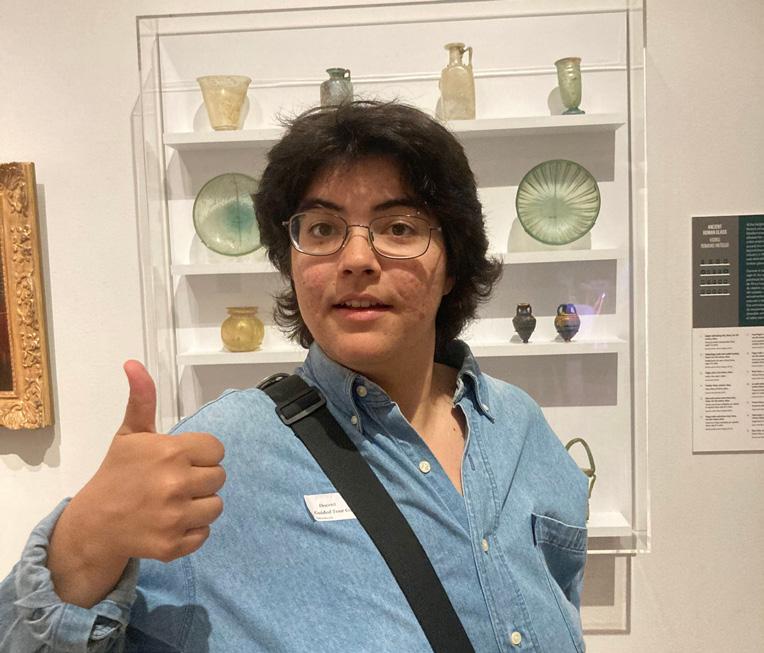
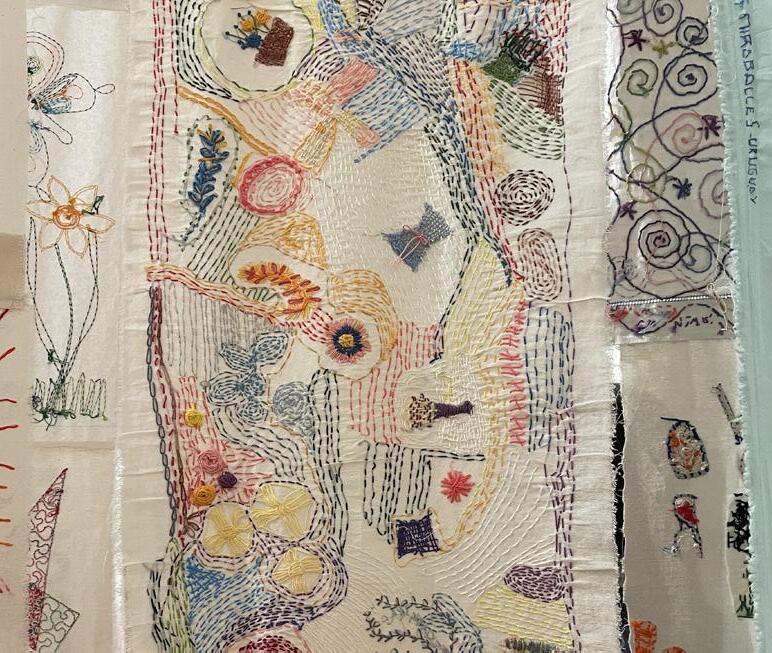
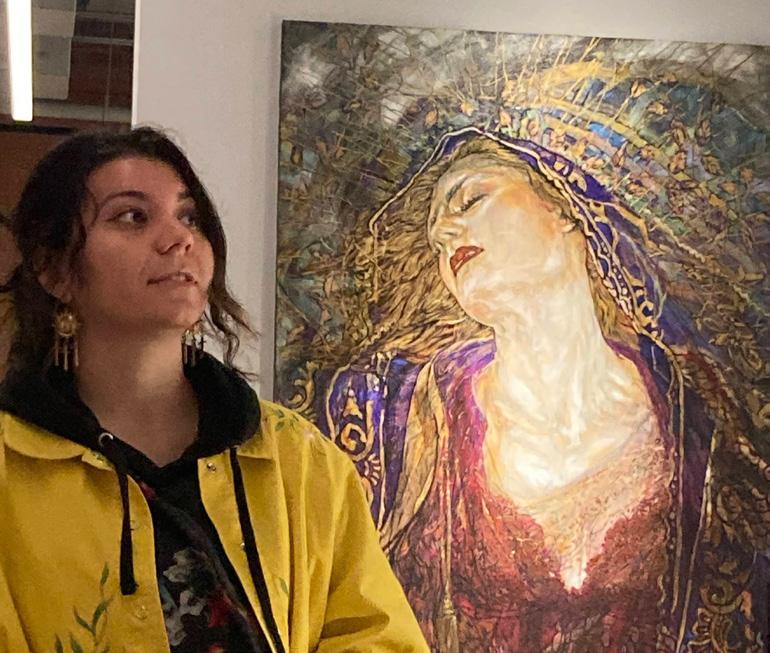
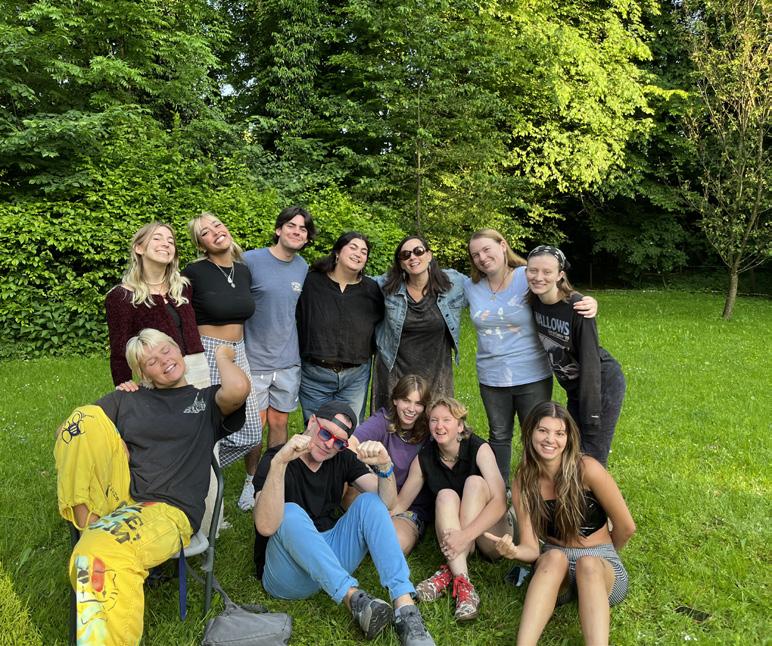
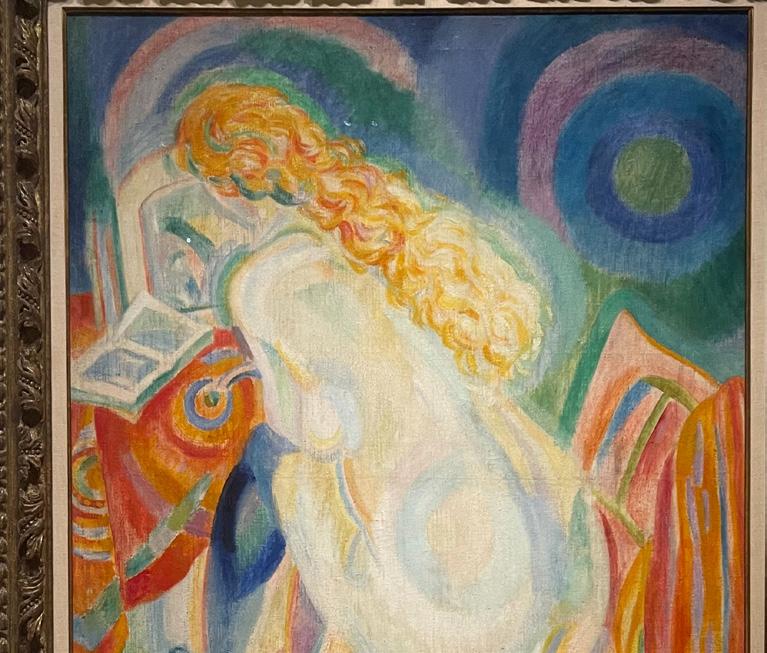
I chose this course because I knew the opportunity to be part of a Johnston travel course would be a truly remarkable experience. Getting to explore the cities of Salzburg and Berlin was incredible, and being able to do so with my Johnston community made it much more memorable. The course served as the final part in my education before graduating, and it was one of the best experiences I got to have during my education. I feel that it allowed me to grow so much closer to my community and was a really beautiful way to wrap up my time at the university.
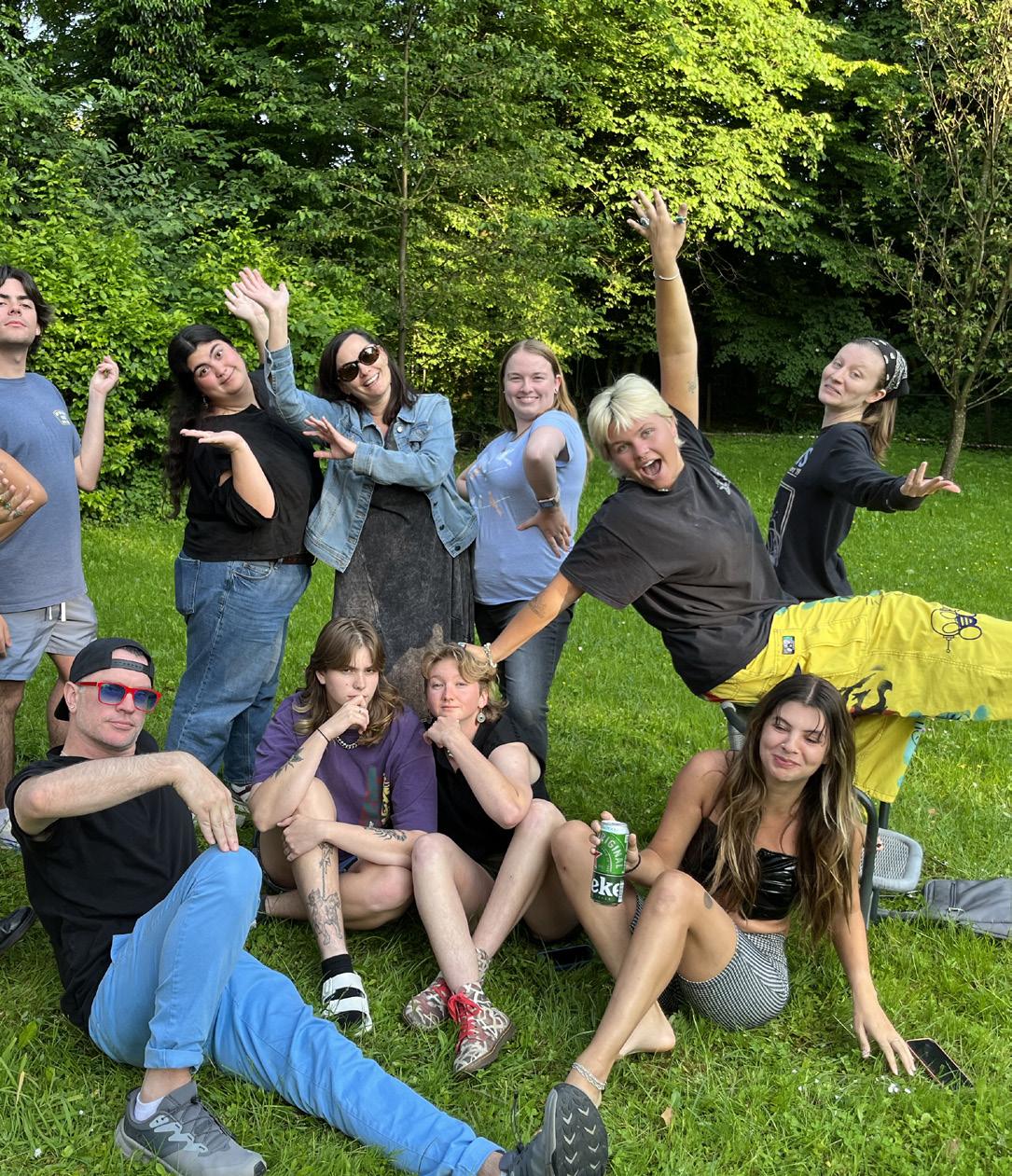
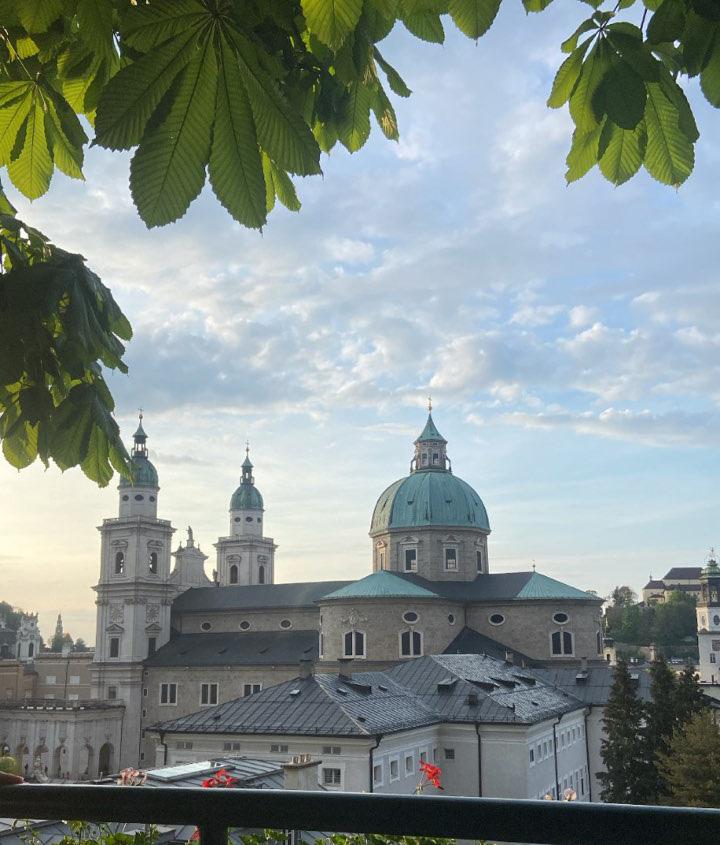
This last May, I had the opportunity to travel to Salzburg and Berlin to study European Visual and Media culture. In true Johnston fashion, we wreaked havoc all over Europe. In Salzburg, we studied the history of visual culture touring baroque museums, trick fountains, pleasure gardens, and chambers of curiosities. Then we journeyed to Berlin, and in a packed week, we studied the visual and material culture of East Berlin, toured Holocaust memorials and monuments, learned about Berlin’s graffiti culture, and visited the Schwules Museum. The most exciting aspect of the week was clubbing with PhDJ himself at the iconic Tresor nightclub. We ended our May back in Salzburg, where we went on a disastrous Sound of Music bus tour. Despite the chaos, I’ve never had so much fun in my entire life and I’m very thankful that Tim and Kelly decided to teach this travel May Term.
MIA LOBITO, JC ‘24May 2023. Twelve students. Two faculty. For three and a half weeks, we lived and learned in Salzburg, Austria and, by contrast, Berlin, Germany. Gardens full of trick fountains? Check. Walking tours of cathedrals built and destroyed and rebuilt again? Yes. Kelly Hankin giving a lecture on East German material culture during the Cold War, a screening of the film Goodbye Lenin, with a concluding trip to the DDR museum? Absolutely. Also: a queer Israeli and Palestinian Restaurant and club music in Berlin. The chance to study European Visual and Media Cultures was afforded to our group in part through travel grants awarded to students. We'd say more, but what happens in Berlin, stays in Berlin.
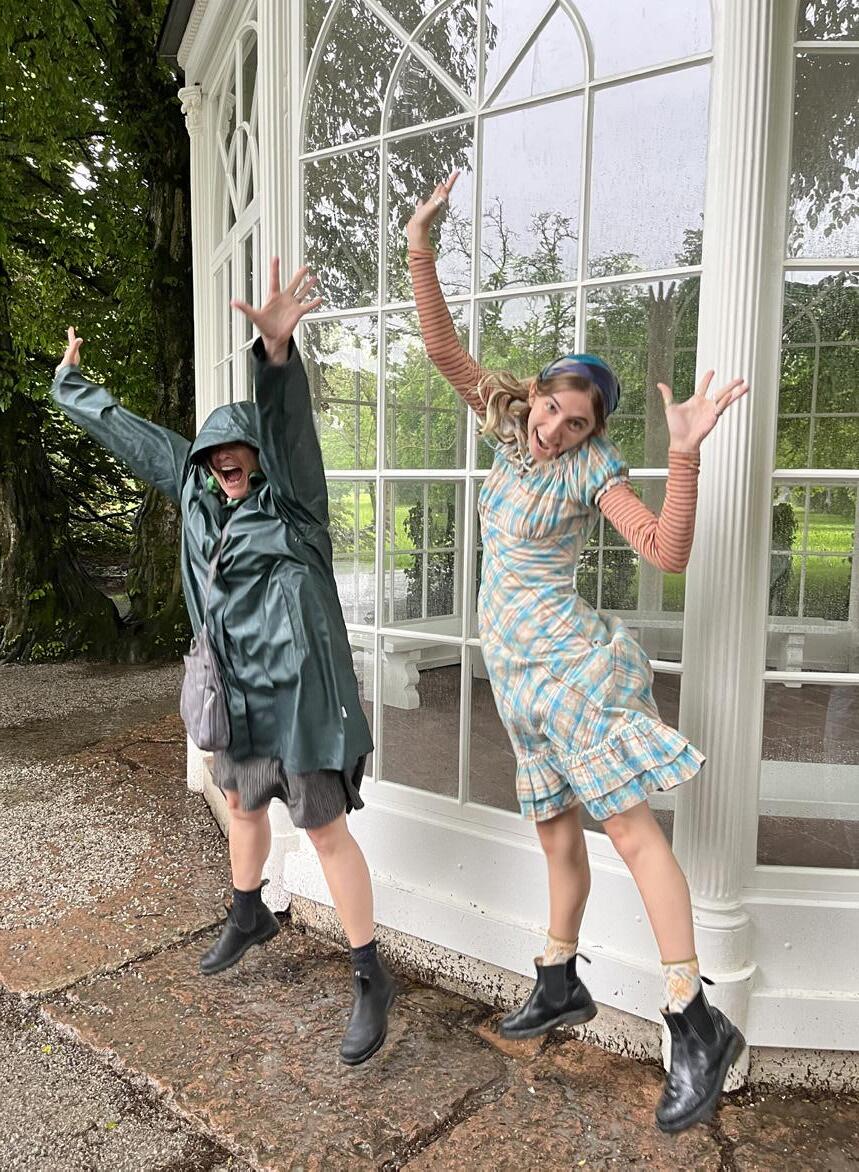
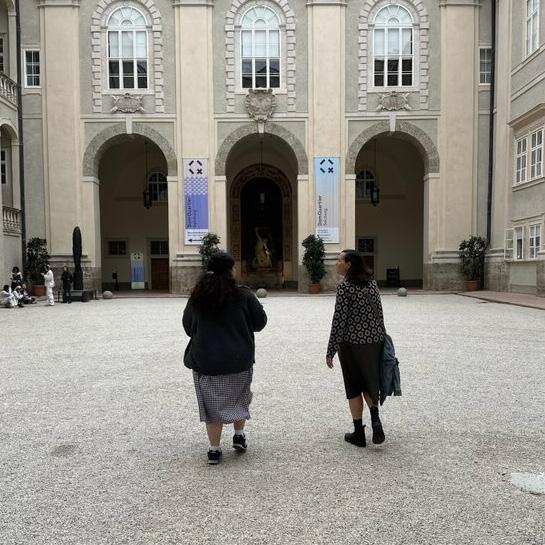
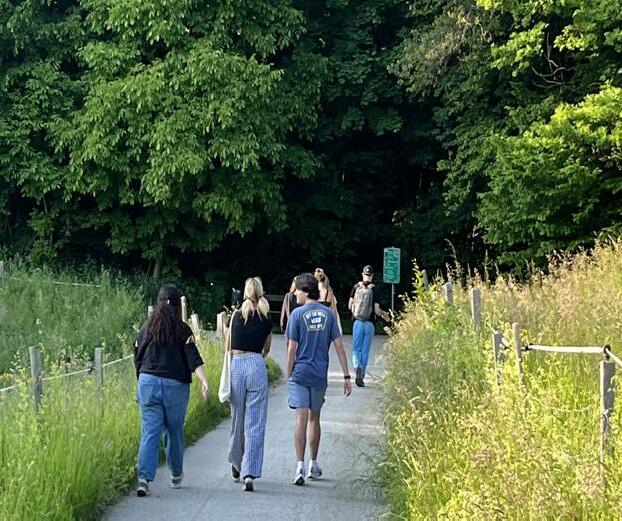
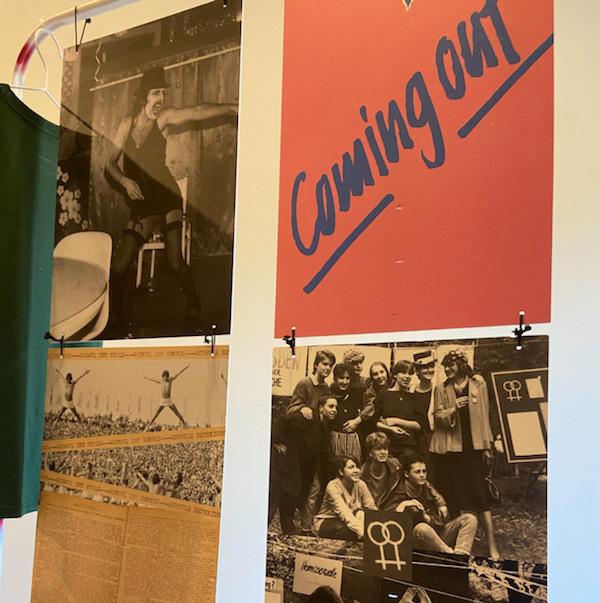
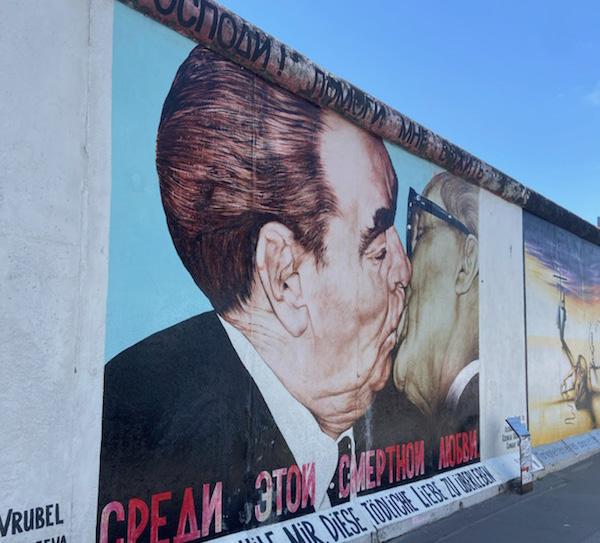
In May 2023, Professor Julie Townsend and rising senior Emily Hernandez led a class entitled SoCal Museums: Collection, Curation, and Narrative. The class considered the history of museum collections, recent instances of repatriation, questions of curation, and institutional narratives. They visited 8 museums in 3 weeks! Emily was thrown into the driver’s seat when Julie came down with COVID for the first week of the class. Emily introduced the class to popular and scholarly literature and documentaries on art museums. Highlights of the class included the Mingei International Museum where the class got to talk with Community Liaison Cristina Godinez about building relationships with local communities and our tour of The Getty Center where the docent and intern had lots of questions about Johnston. As always, travel courses offer exceptional opportunities for student bonding and a chance to connect over shared academic interests. Professor Townsend is hoping that a similar seminar might someday be possible with Johnston alums!
JULIE TOWNSENDI worked with Julie Townsend to create a May Term course on museums out of a desire to share my love of museums and deepen my understanding of them. I want to either go into the museum sector and planning and facilitating this class was a way to get thinking about possible paths to take. Preparing for the course included reading tons of institutional critique, planning the syllabus, choosing readings for the class, and choosing museums to visit. While facilitating the class, what impacted me the most was getting to introduce some students to museums for the first time.
What a delight SoCal Art Museums was! Emily crafted an incredible seminar which had something for each of its members. It was so special to be able to visit a plethora of museums and converse about each one and I feel fortunate to have had that experience. I now take much more into consideration when viewing galleries and museums and the art pieces which they house!
IZZY JONES, JC ‘25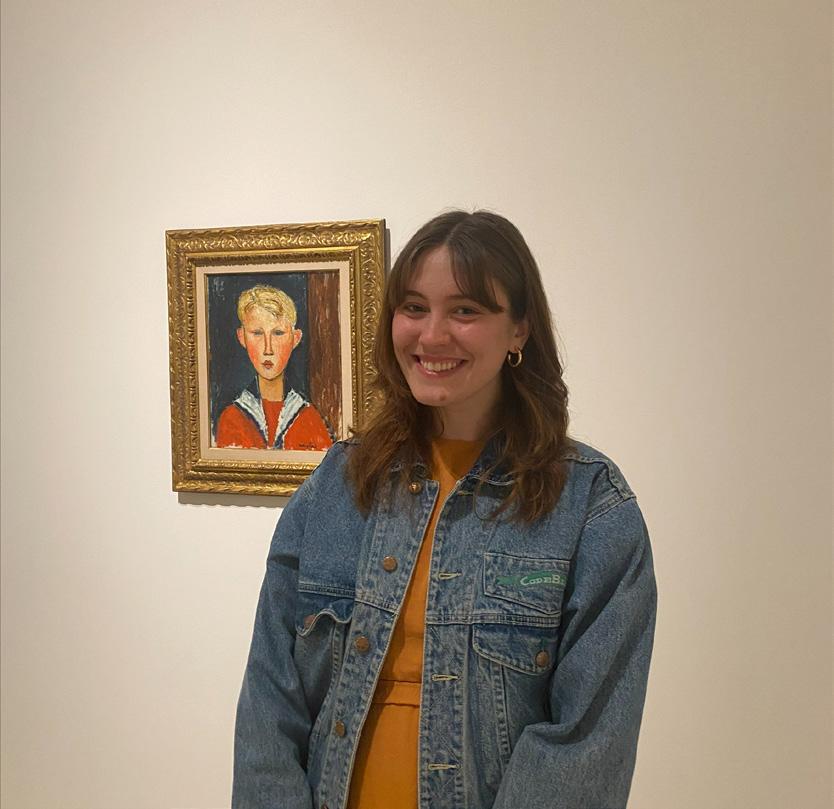
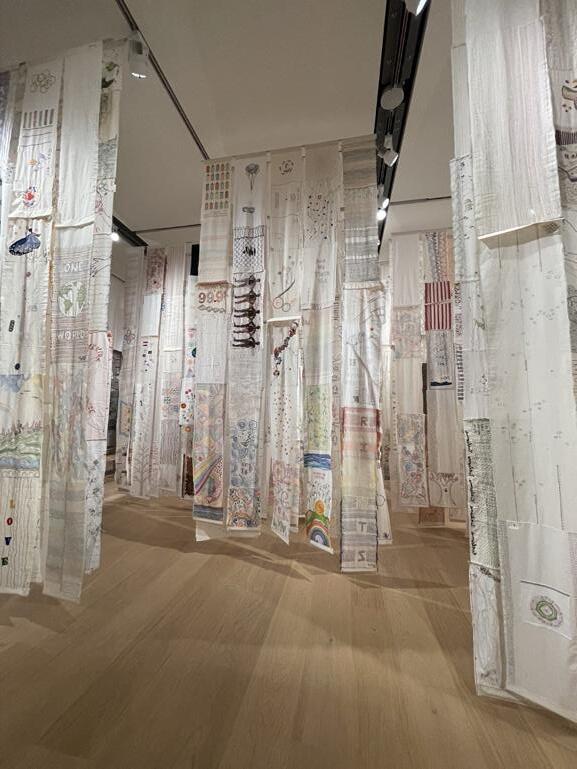
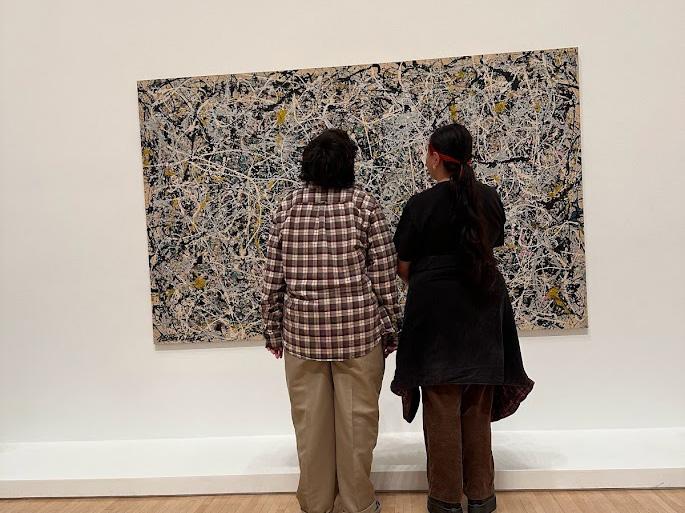
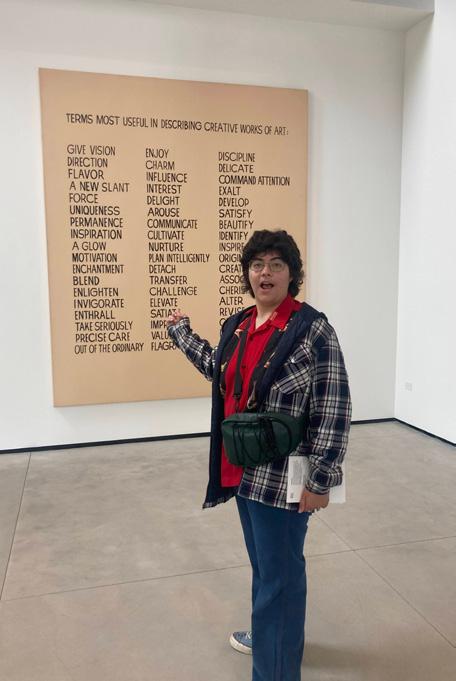
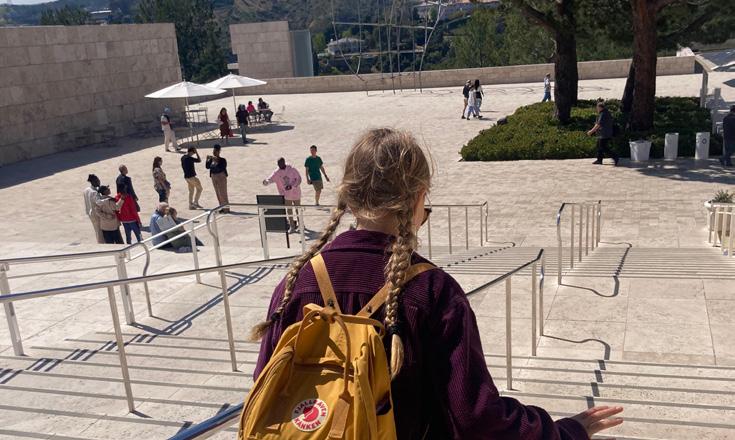
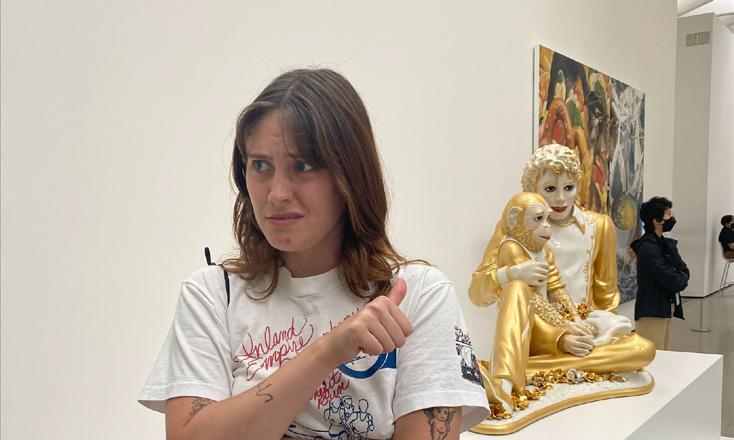
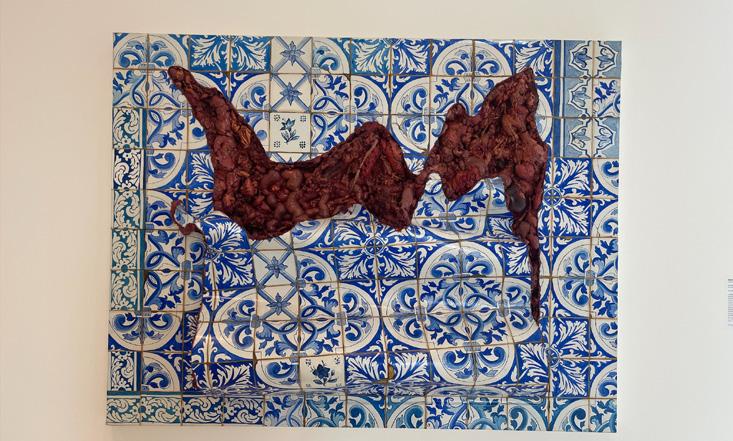
I chose to take the course in order to support my friend Emily, but also to dip my toe into museum studies in the most exciting way– visiting many Southern California art museums! This course changed the path of my education in Johnston. I grew up going to museums in Southern California, but not until this class did I recognise the wider industry problems and the ways people inside the museums are working for positive change. I now hope to pursue museum studies at the graduate level.
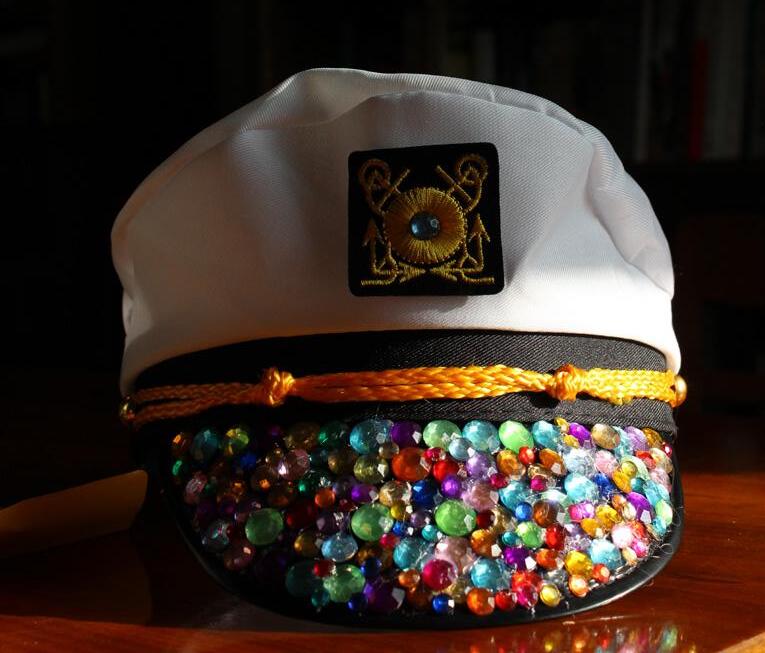
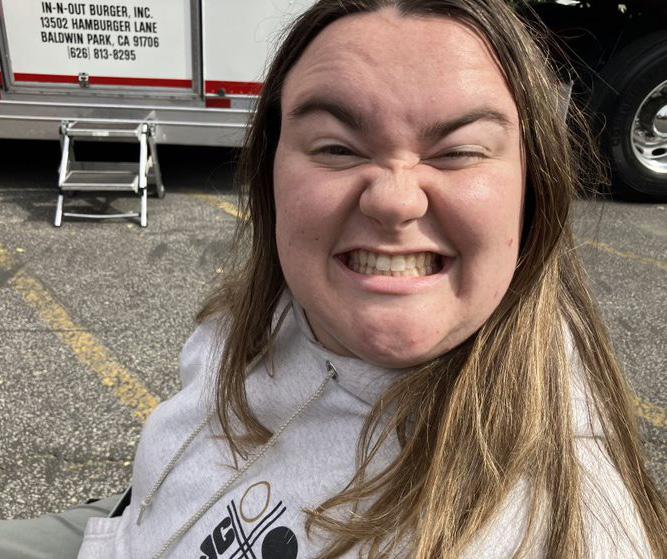
On the weekend of February 16th, hundreds of alumni returned to Redlands for a weekend of parties, panels, meetings, and memories. Throughout the weekend, Johnston Complex was alive with conversations between alumni, current students, and past and present faculty and staff about intergenerationality, Johnston history, and how to build community in a post-mass-isolation era. The Renewal came after a turbulent five years which saw over a year of online learning in Johnston and persistent layoffs and understaffing both in Johnston and across the university. From the first-ever Kathryn Green Plenary Panel, to the porch, to community meeting on Sunday morning, students and alumni alike expressed a desire to build connections beyond Renewals and beyond the physical space of Johnston complex. Current student Anathea Woirhaye ‘24 says that for her, “Renewal was a wonderful opportunity to think of Johnston in a new way–where everyone who came and all of the current students rather than seeing it as a point of disconnection, saw it as a beautiful place of newness for community traditions. Because of this turbulent period of history, everyone was interested in seeing what Johnston can become as we reimagine traditions that can serve us in the future.”
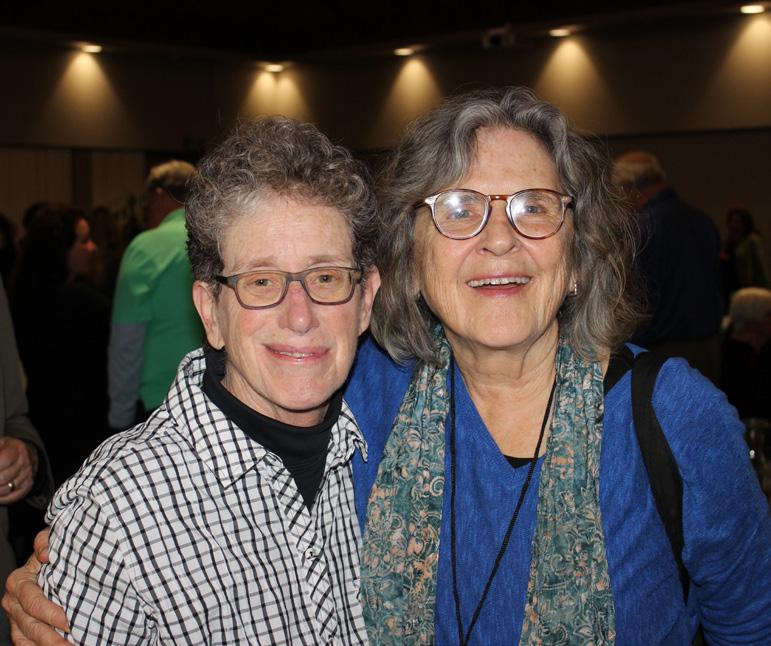
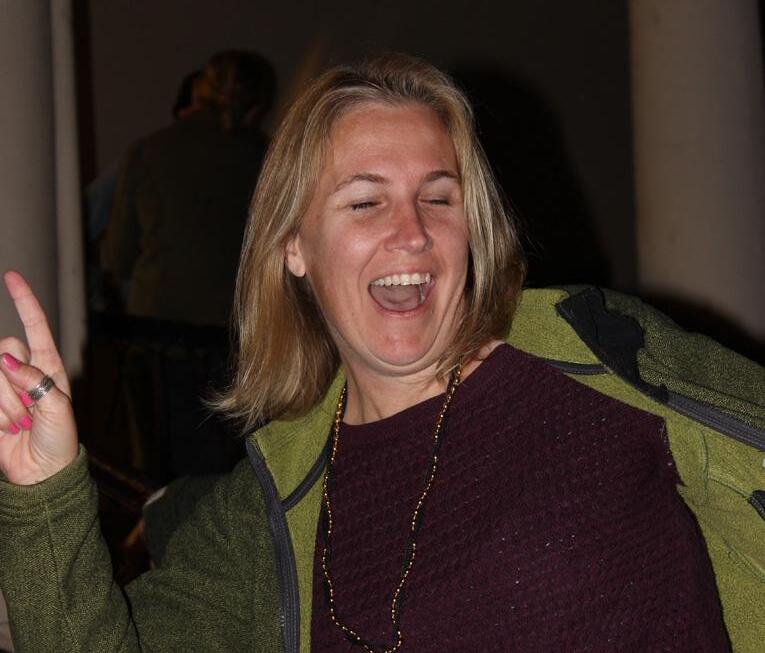
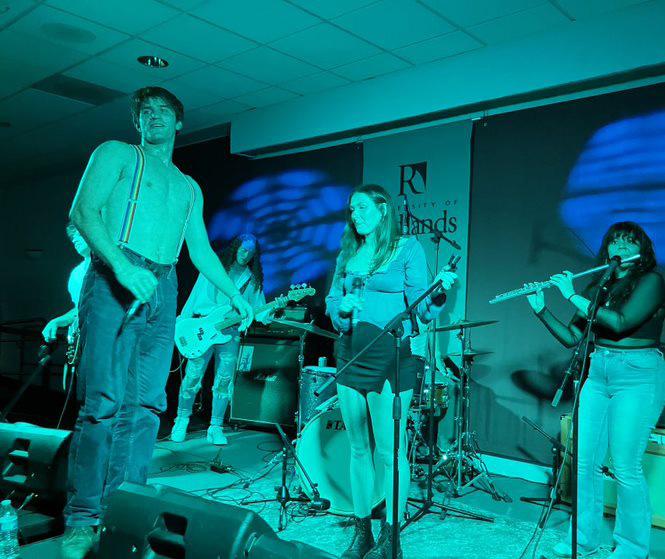
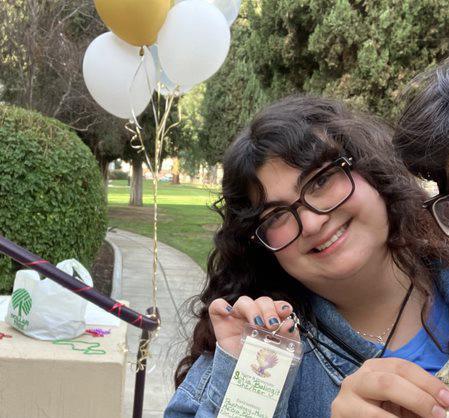
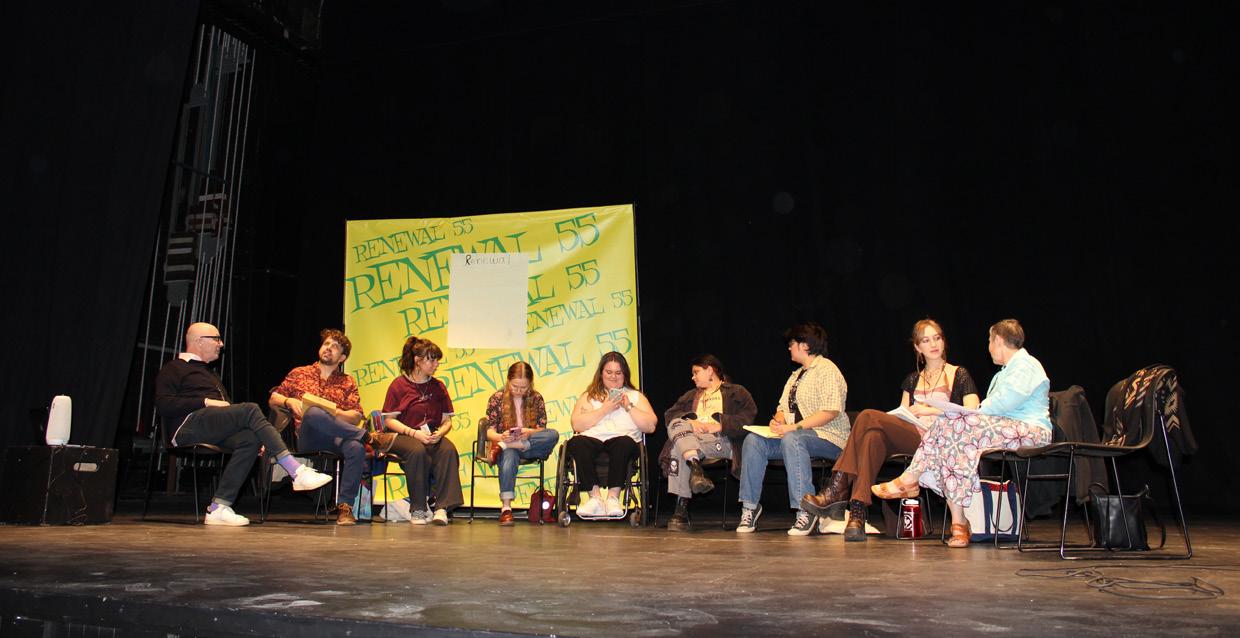
In keeping with the themes of intergenerational connection and community, Kathy Ogren’s weekly seminar, Johnston and Doing the One Wild & Precious Life, made up of current students, faculty, and alumni, held the first-ever student-facilitated plenary panel at this year’s Renewal. This year’s plenary session, held in honor of Kathryn Green’s lasting generosity and commitment to building connections between Johnston students and alumni, invited the panel’s audience into a typical week in class through a “fishbowl” style discussion of three questions:
• Johnston–alternative to what?
• How does Johnston culture foster agency?
• What is the function of Renewal?
The panel began with Kathy Ogren’s introduction, followed by a short remembrance of Kathryn Green by Rabbi Patricia Karlin-Neumann ‘76, who remembered Green’s time in Johnston College and dedication to the Center throughout and beyond her lifetime. Students in the panel then engaged in a lively discussion of living and learning in Johnston during and since 2020. Angela Bozman ‘25 recalled her experiences as an RA in Holt in 2022-23, when Johnston hosted the UoR’s COVID isolation housing. Ella Budington ‘25 discussed difficulties accessing Johnston spaces as a wheelchair user and the dedication of the community to working around the limitations of those spaces.
Later in the panel, alumni added onto the conversation, discussing their experiences of agency or lack of agency in the Center, the limitations and joys of being a Johnston student over the past 55 years, and the importance of intergenerational conversations to building community and reshaping Johnston traditions in the future.
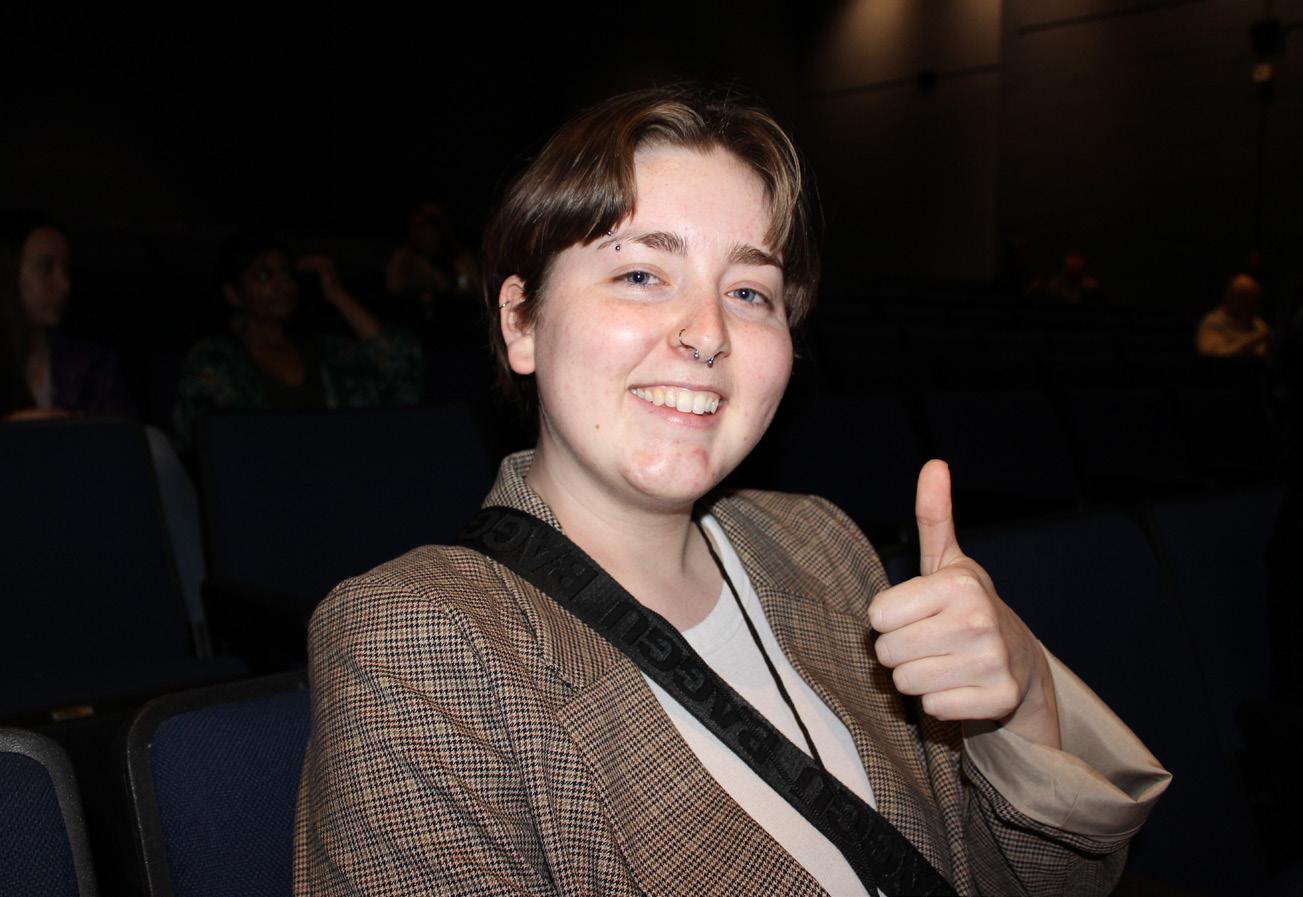
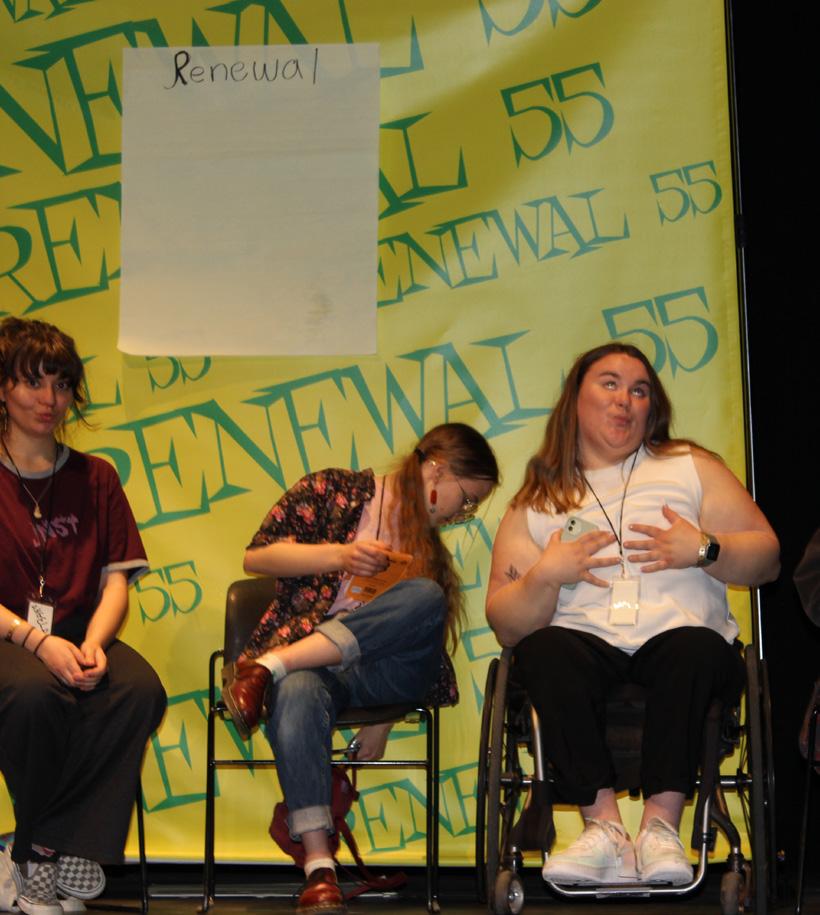
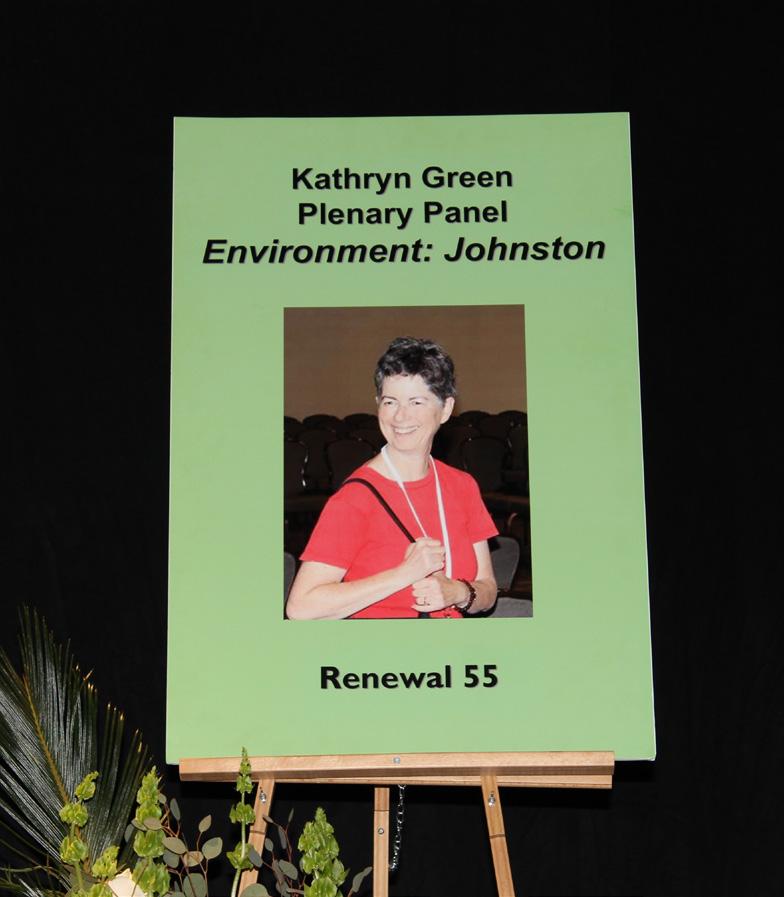
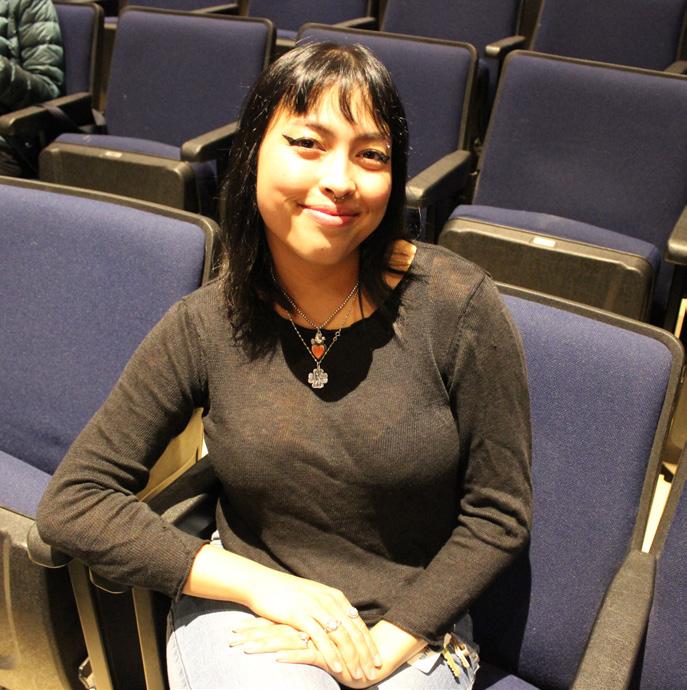
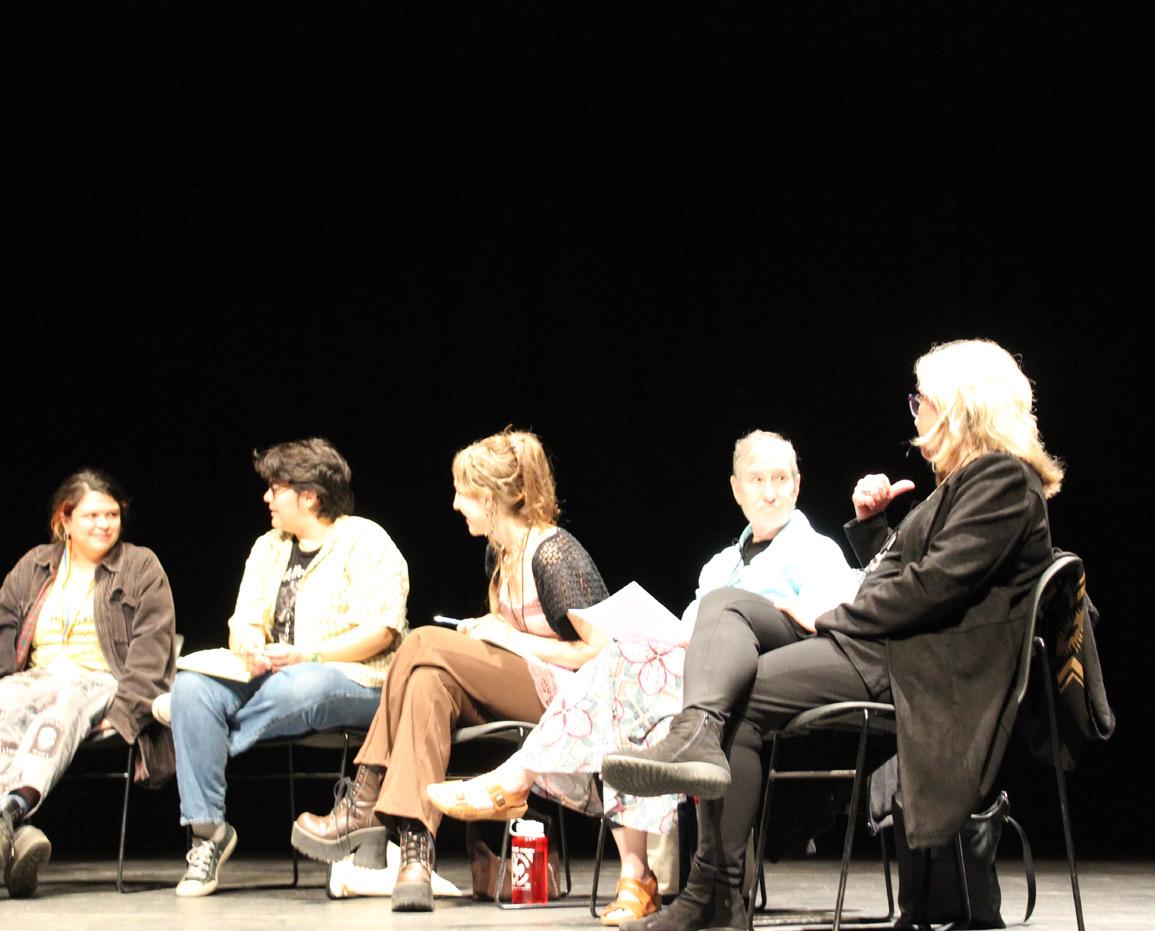
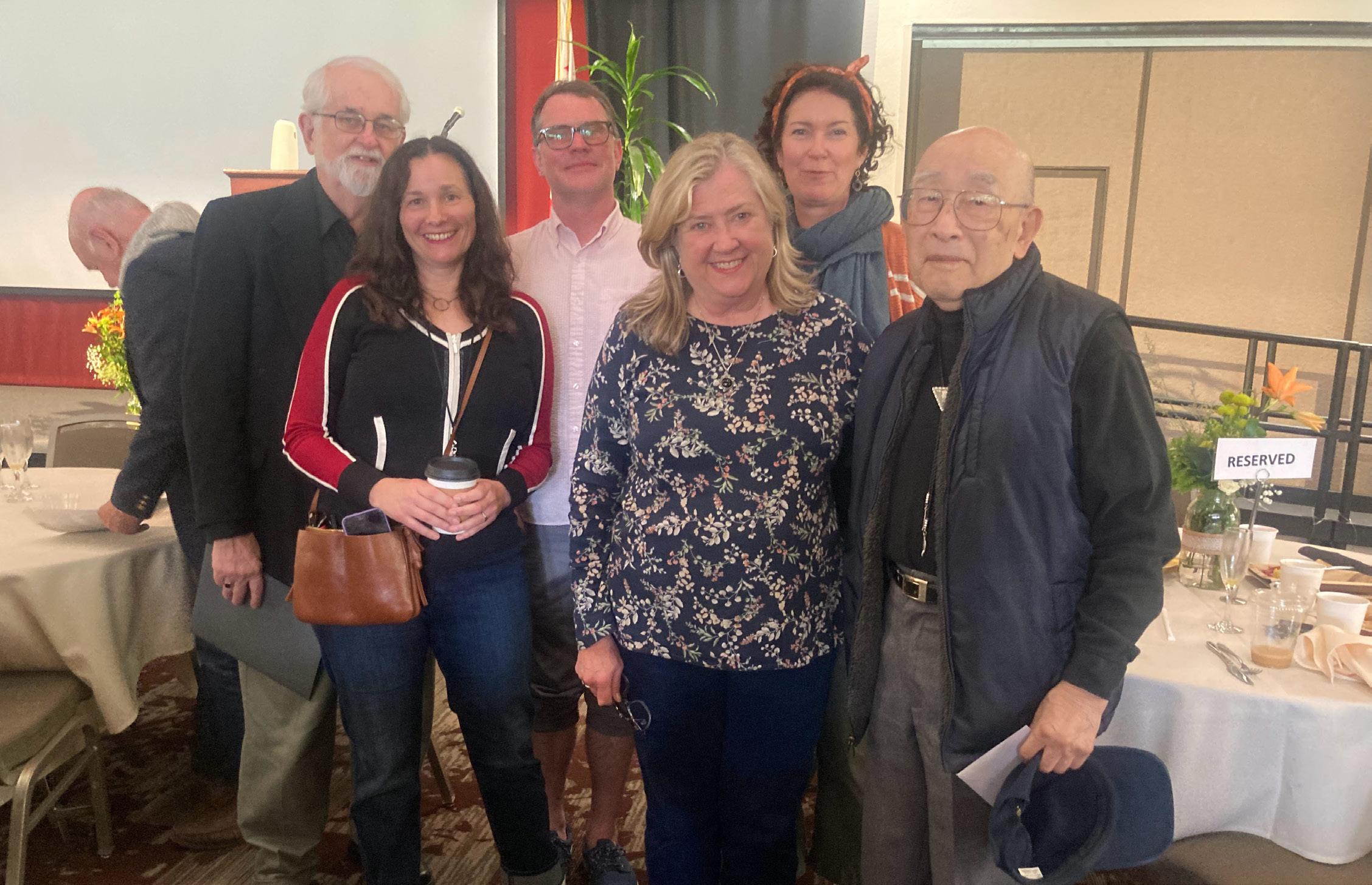
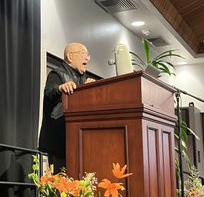

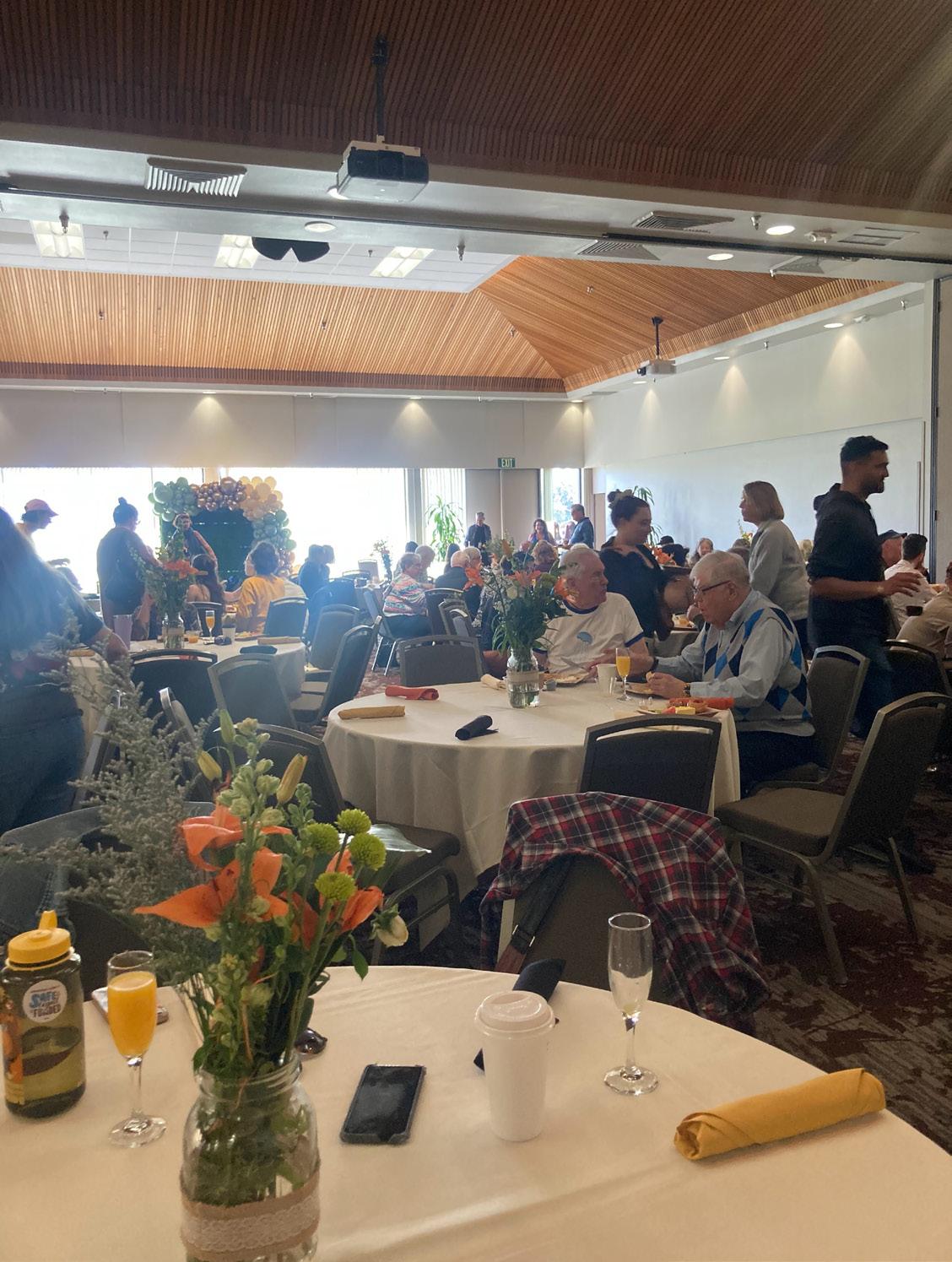
The closing event of the 55th Renewal, organized by current JC director Tim Seiber ‘06, was a community brunch featuring short speeches by all the living former and current directors of the Johnston Center speaking to their experiences of leading Johnston over the course of the past 55 years. Founding faculty member Bill McDonald spoke to the careers of early Johnston leaders who have passed or could not make it to Renewal this year, including the chancellors of Johnston College, Pres McCoy, Gene Ouelette, and Bill Thomas, interim provost of the college, Ed Williams, and early directors of the Center, Kathy Shumaker and Frank Blume.
Yash Owada recalled his time as director in the 90s and his subtle recruitment of faculty for Johnston from across the university as well, the story of founding the director’s discretionary fund to guarantee additional sources of funding for the Center, and the challenges of dealing with community conflict. Kathy Ogren remembered her recruitment into Johnston’s faculty and the feminist bonds she built with other women in the Center along with what makes a Johnston education unique, including excellence, community, and agency in negotiation.
Kelly Hankin recounted stories of caretaking for her parents as a metaphor for taking care of the Johnston community as director and honored alumni who served on the Johnston staff during her time as director, including Denise Davis, Adam Ghovayzi, M.G. Maloney, and Maggie Ruopp. Julie Townsend discussed how Johnston is both a labor of love and faces ongoing threats from forces in the wider university and higher education environment and emphasized the necessity of continued alumni support for Johnston’s mission
Finally, Tim Seiber recalled both his time as a student in Johnston and his return as a faculty member as an experience of both freedom and community love. Each director expressed their attachment to the community and emphasized the enabling generosity of alumni in producing Johnston’s continued freedom and unique ability to empower students.
Hi everyone! It’s an honor to be here speaking to you all. How awesome is it to not only be in a space exclusively filled with individuals who for once in my life know what a Johnston degree is, and also all value this unique form of education so much that we all showed up here today? Seeing all these smiling faces and getting to know your curious minds makes me so happy that we get to experience this together.
Tim asked me to speak tonight on the concept of this year’s theme: Environment. I think he asked me to speak because my Johnston degree and current job focus around this word. I designed a degree that allowed me to learn about natural environments, political landscapes, and sociological phenomena through a geographic lens. From my studies at Johnston, I scored a job at the Environmental Systems Research Institute, or Esri.
Esri uses science to study environments; we do this through GIS or analytical mapping where you can describe any environment through maps and data. But for the sake of today and this moment “environment” can mean a lot of things. Like my degree emphasizes, environment can mean a physical place, the natural or built environment, the ecology, and physical factors that make a space, but environment can also mean the current state of something, the condition, the culture, the social force of some place.
Either way, location is involved in either of these definitions therefore I am the lady to talk! I also think he asked me to speak because I am representing the most recent group of Johnston graduates in the class of 2023. I can speak on the most recent environment of Johnston.
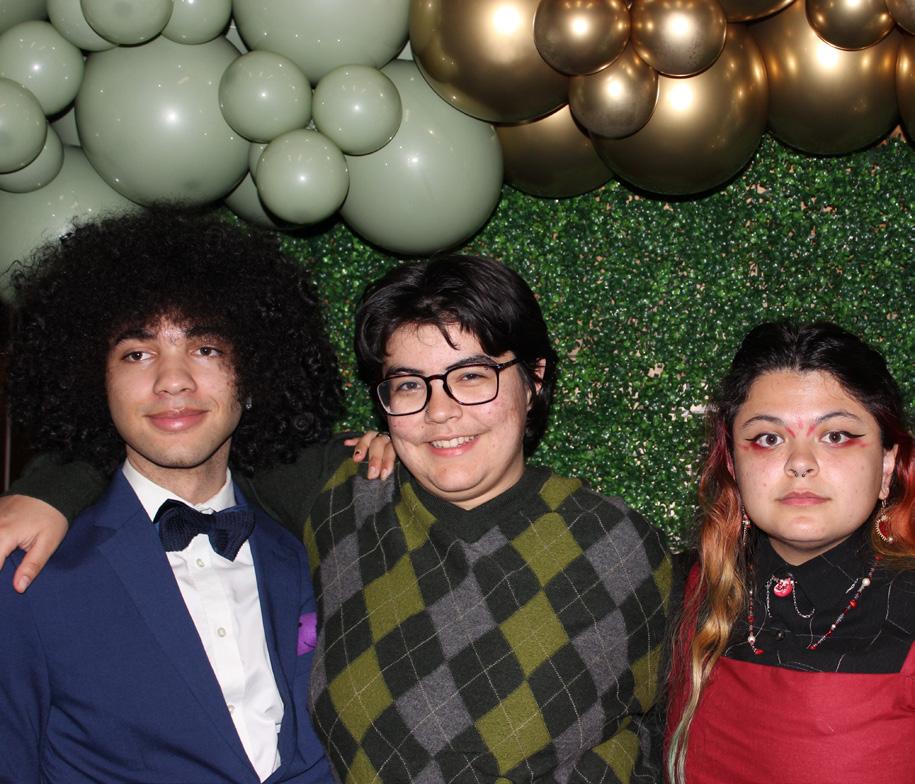
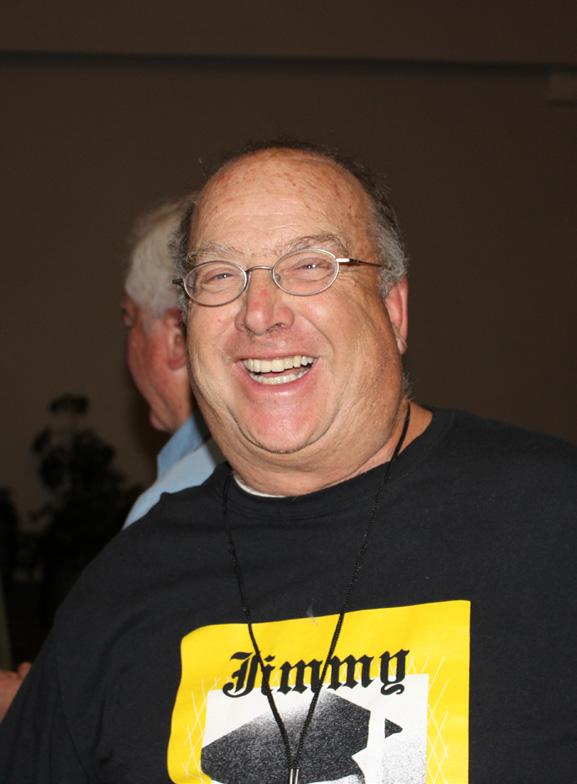
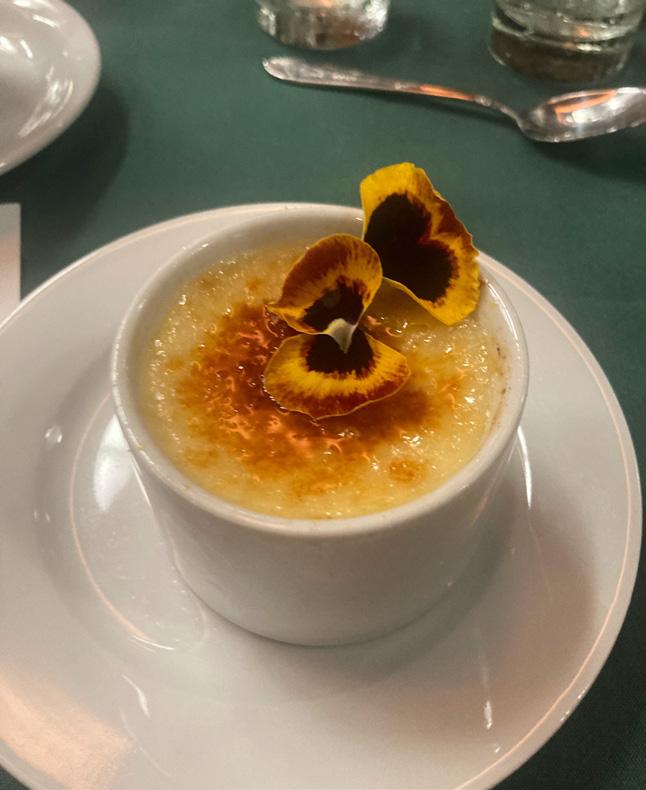
In my freshman year of college, just like many of my other classmates and peers, I packed up my freshman dorm on a rainy sad day in March of 2020 and suddenly flew back home to Missouri. From there I continued to do my education remotely on a laptop for the next 15 months or so. This was bizarre, but what’s Johnston without a little bit of bizzare.
There is that mural in Holt, on the first floor, where it describes Johnston through the history it’s lived through and the memorable moments of the college. On that mural are words like Vietnam War, AIDS crisis, 9/11. And also up there is naked prom and kissmass. I don’t know what the hell we’ve been getting into for the last 55 years, but we have kept up that ‘havin a good time’ mindset. I mention my COVID experience because that is one of the newest additions to the mural, and has been the most recent environment Johnston has had to stay afloat through.
I think our super power here in Johnston is our ability to see ourselves and our institution in perspective with the larger environment we are living in. Our history, Johnston’s environments, are persistently woven into the fabric of the state of the world, which is why you see national and global moments written alongside the community events of that era or year. This mindset where we see ourselves as a part of a larger environment is also translated to the scale of the student–individuals see themselves as members of a large community and are tasked to live intentionally with that knowledge.
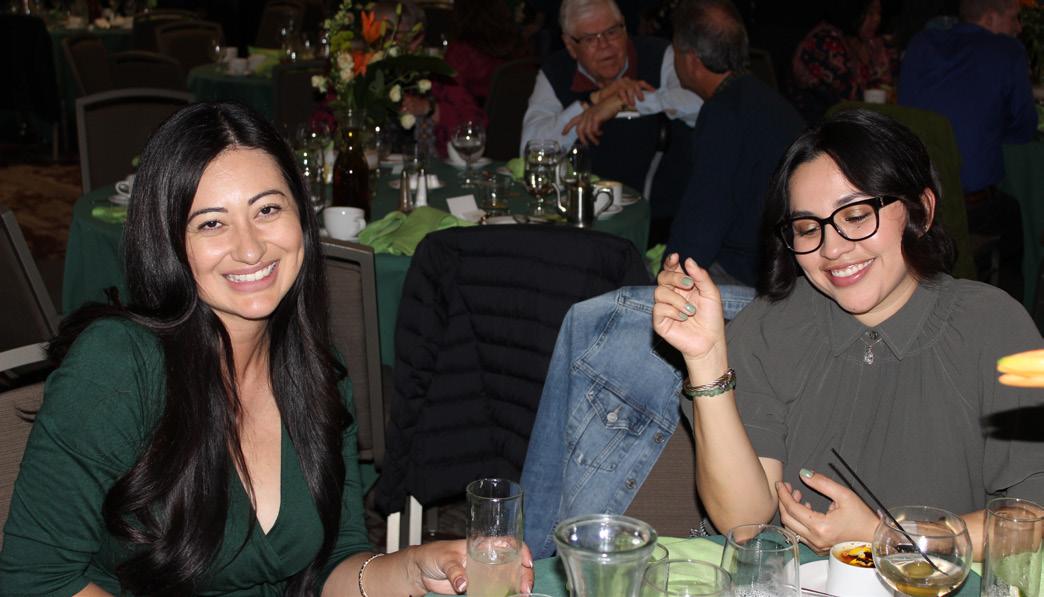
When you are a current student you have four years of institutional leverage, entitlement to the hallways and walls, you also are granted new choices that childhood didn’t bring, you teeter with your autonomy and the building of your own path. What we figured out 55 years ago is that there is this perfect recipe of granting individuals their autonomy that will in turn benefit the whole collective and present a certain dedication to preserving a community.
I think we can all agree the 21st century is a wild time–kids are more isolated, more dependent on technology, and learning styles continue to change. Although Johnston is a living environment able to move and change with the current conditions, I think what this weekend has shown me is that Johnston doesn’t need to change for the new era, Johnston needs to tighten up and preach those fundamental values we created in 1969: intentional living, social care, community building, and individualized learning.
We need each other. Community can foster health. Technology can’t do this, it is in the presence of others where love and innovation really exists. Who is better to share those values with the newer generations of Johnston students than the former ones? There is so much value that comes from our community connecting, not just between current students trying to decipher the Johnston way, but through the support and perspective of alumni leading as example to the power of this education and this community. That’s why events like this are so important.
So I am going to end by saying we have a challenge–connecting and sharing through our shared values, not just every 5 years but in the time in between. I would love to hear your thoughts on how we can continue to foster this community after years of isolation and prioritize building a truly intergenerational community.
At the Renewal Dinner, I was briefly introduced to Linda Braun, a Johnston Alum of ‘79. I was intrigued by her experience as a Waldorf teacher, though our passing conversation was cut short by Tim’s speech, and we parted ways. We exchanged numbers the next morning at the Director’s Brunch, and two weeks later, we finished our conversation over the phone. At the end of the call, Linda suggested that I look around Redlands for possible Waldorf Schools, and added that if I was ever near Tucson, I was welcome to stay at her home and tour the Tucson Waldorf School she helped establish. The offer may have been simply polite, but I was on spring break and happened to have plans to visit Phoenix in two days. Curiosity drove me seven hours on twenty-four hour notice to stay with Linda, who graciously and in true Johnston fashion, opened up her beautiful home and mind to me.
The school was set on a beautiful old ranch at the Catalina Foothills, and when we arrived, the students were filtering into various classrooms. Linda had arranged for us to sit in on a fourth-grade class, and I watched in wonder as the children learned through art and song. Linda introduced me to many of her friends and former peers, and I got a chance to speak with them about their teaching experience: what they have learned about themselves, child development, and the human spirit.
As I left the school amidst the storms that filled the valley, I saw myself as a girl, learning to read through fantasy and learning to live by playing pretend. Imagination continues to shape my becoming, and it was profound to visit a place and its people that also understand imagination to be a function of learning and being. I am grateful for my friendship with Linda, through which I found a part of myself reflected back by a community.
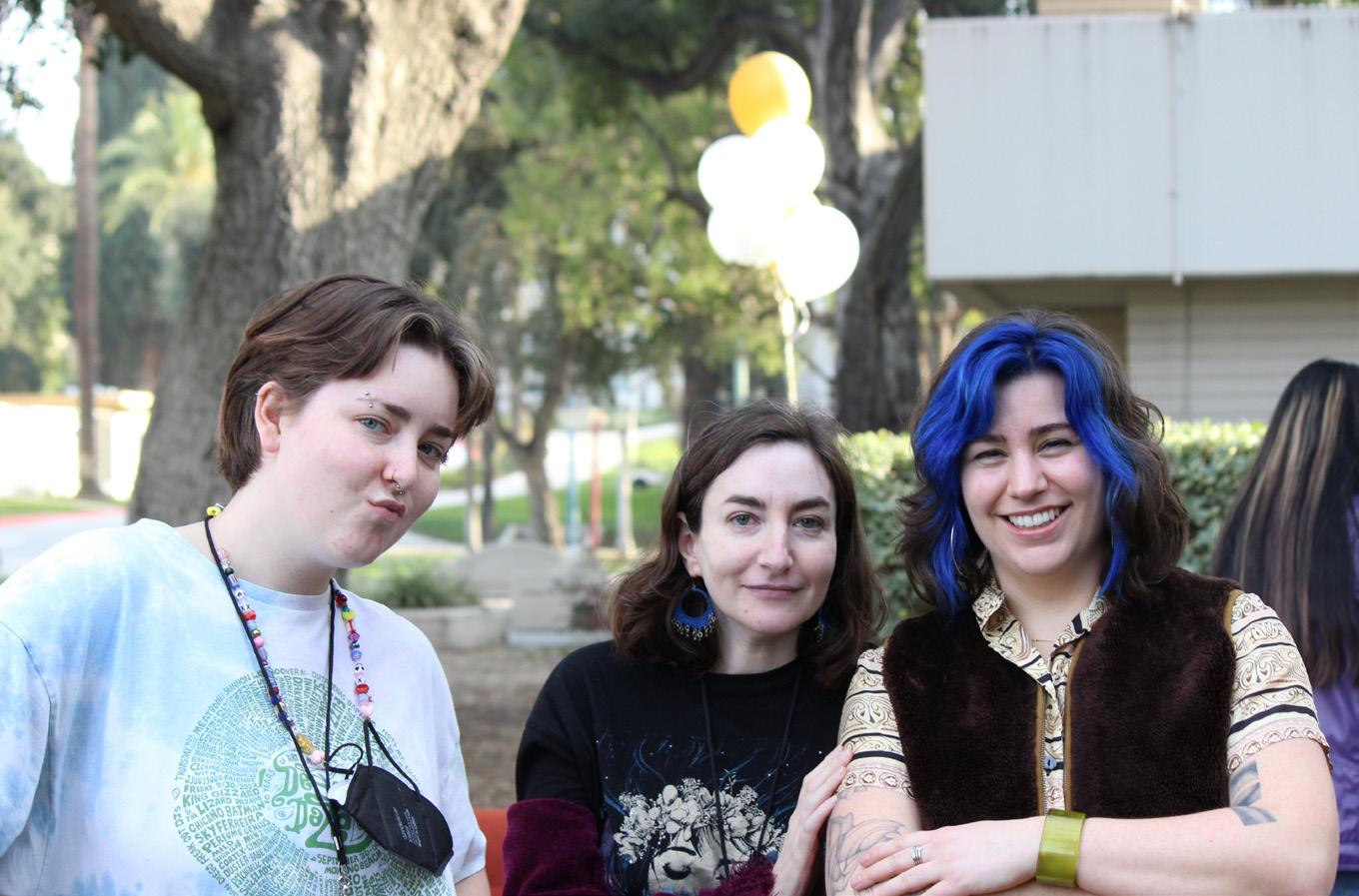
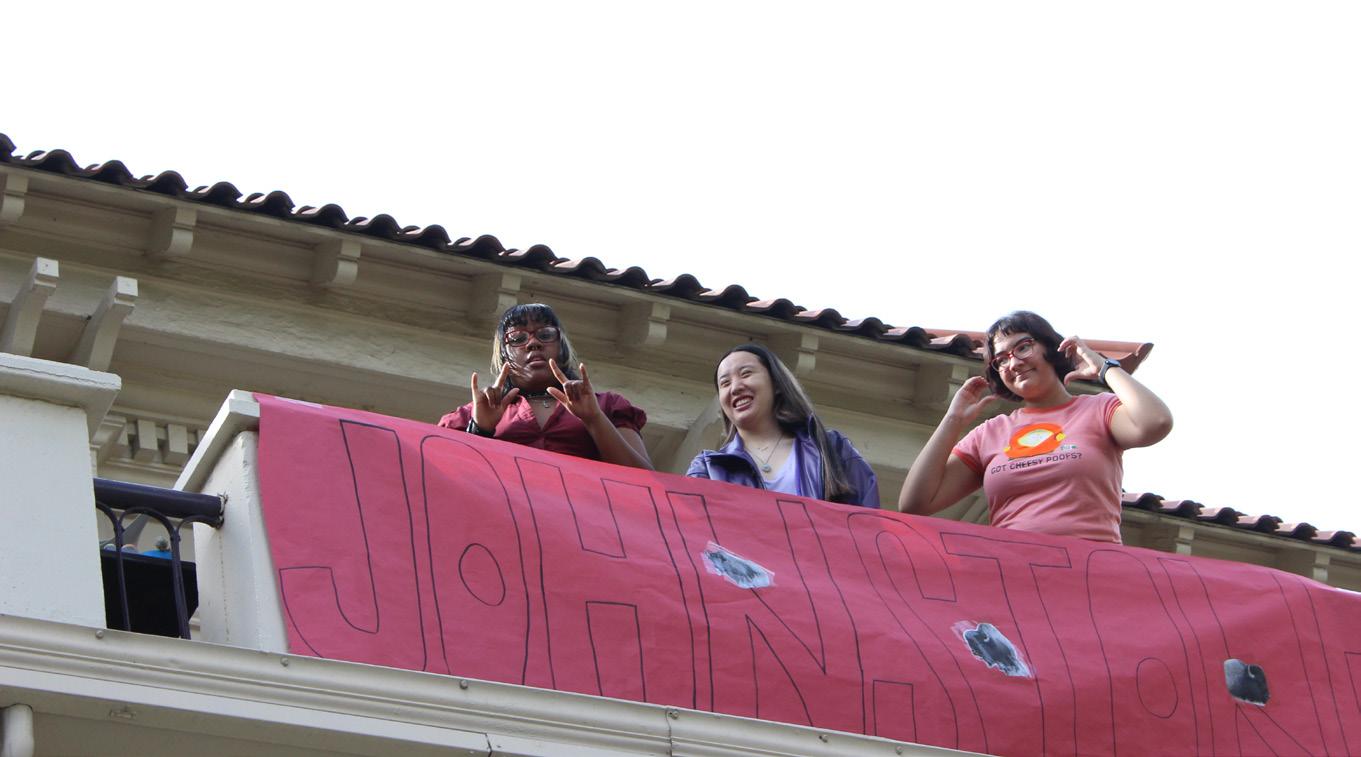
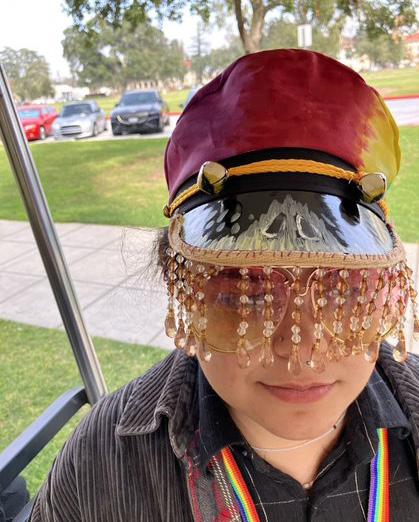
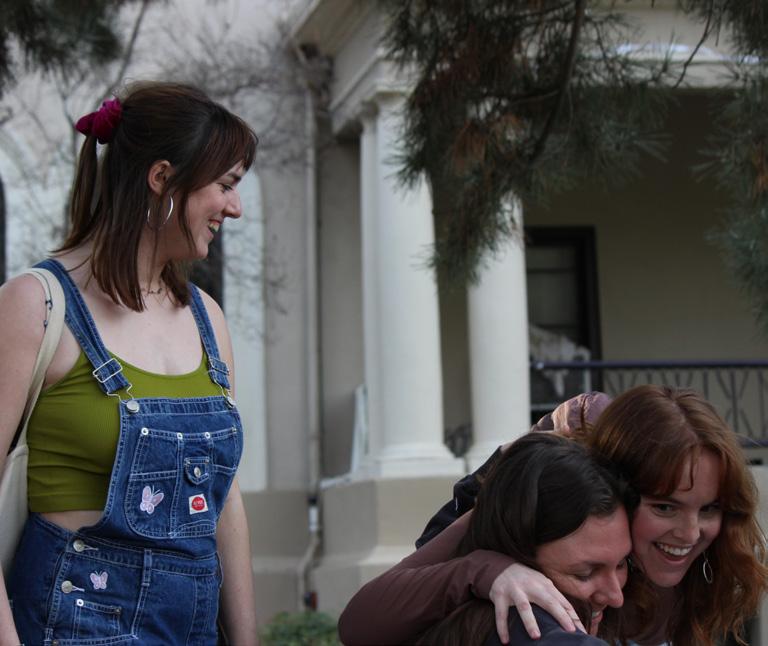
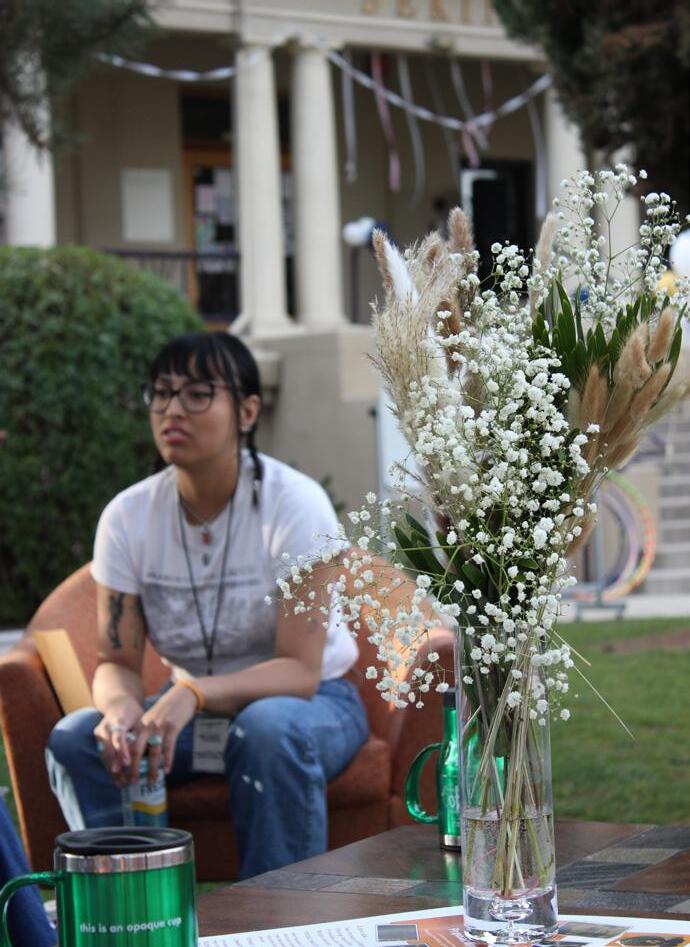

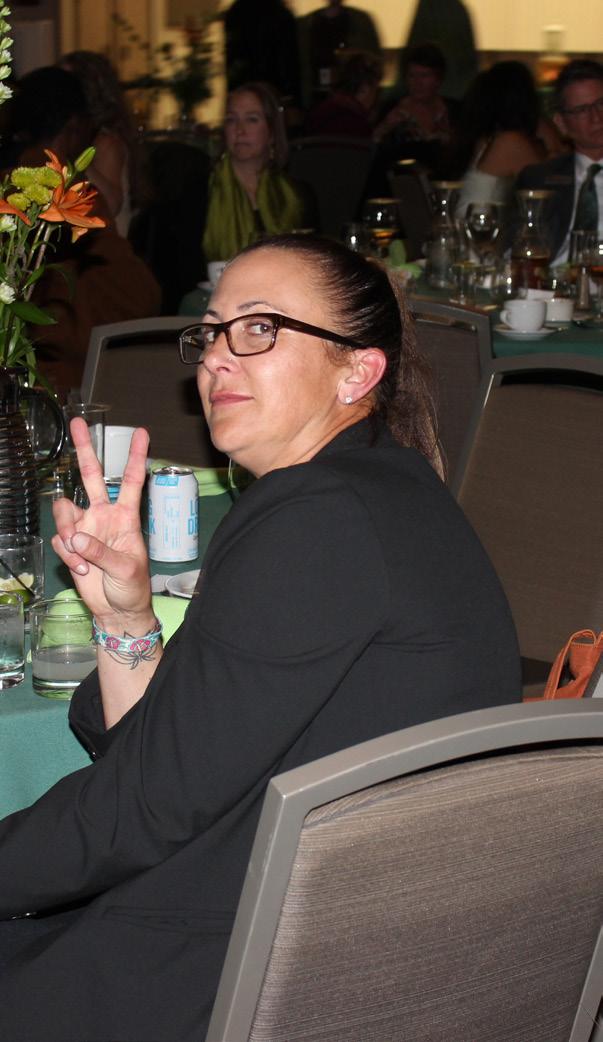
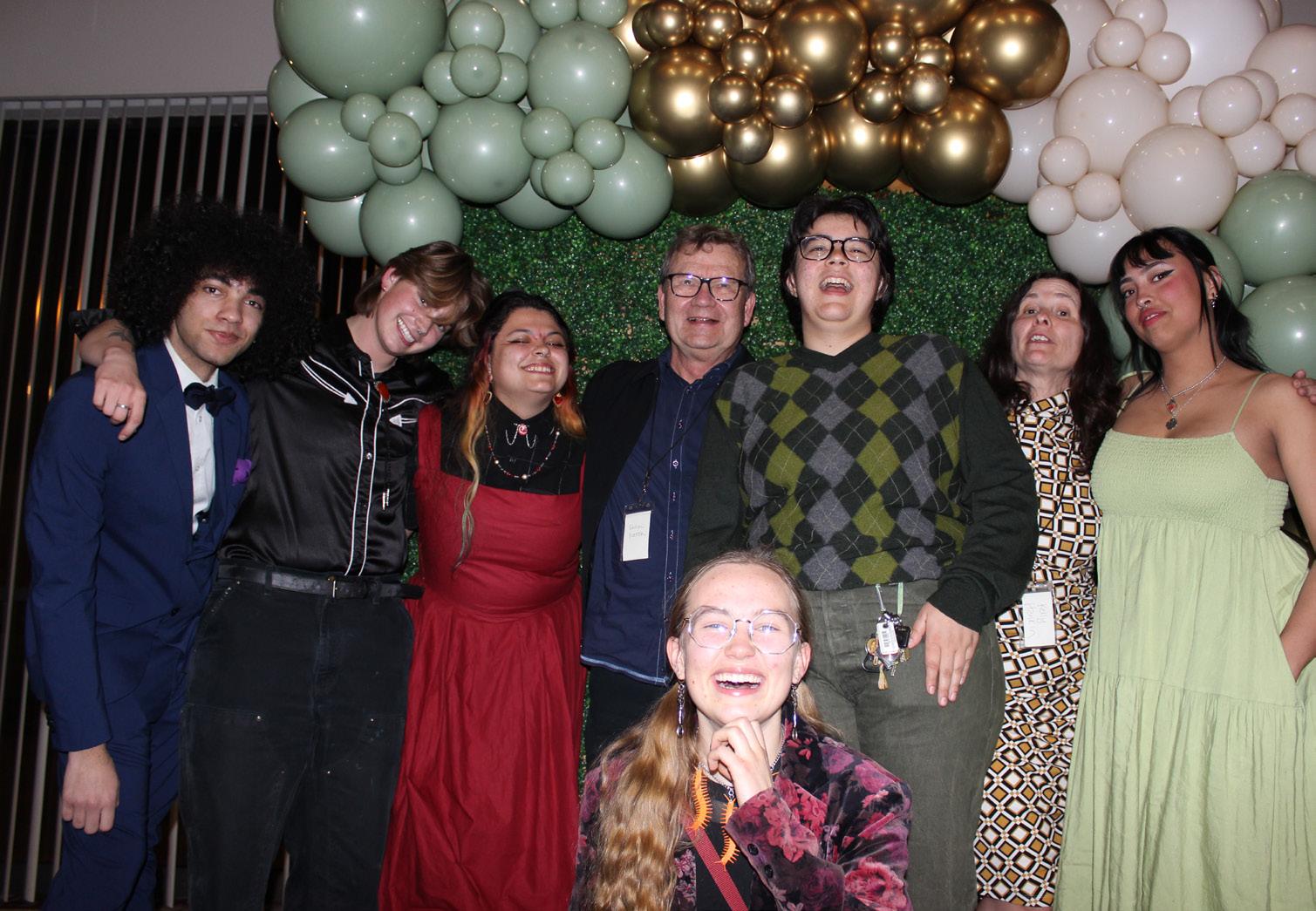
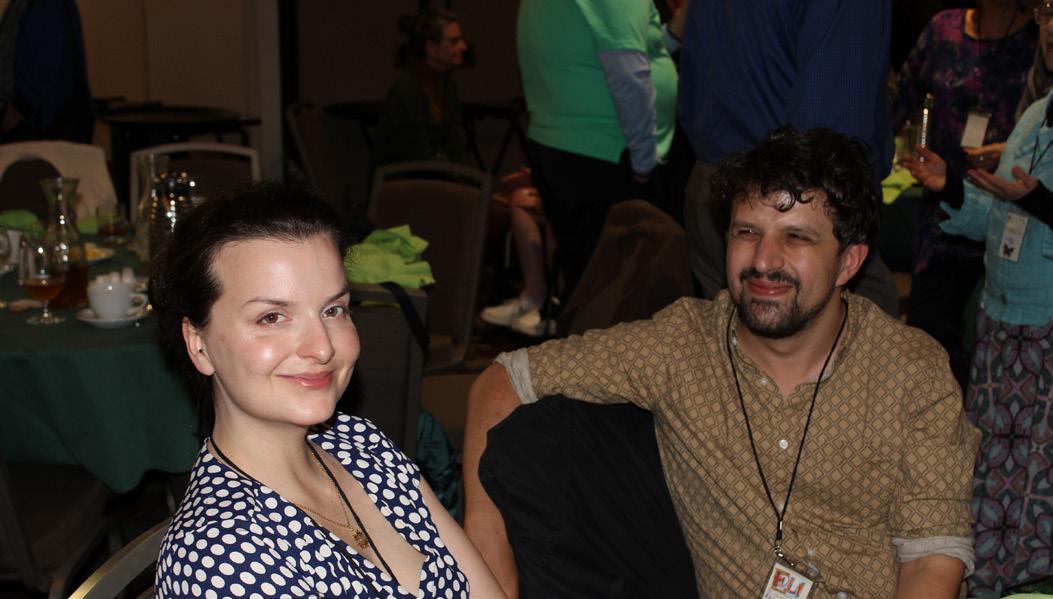
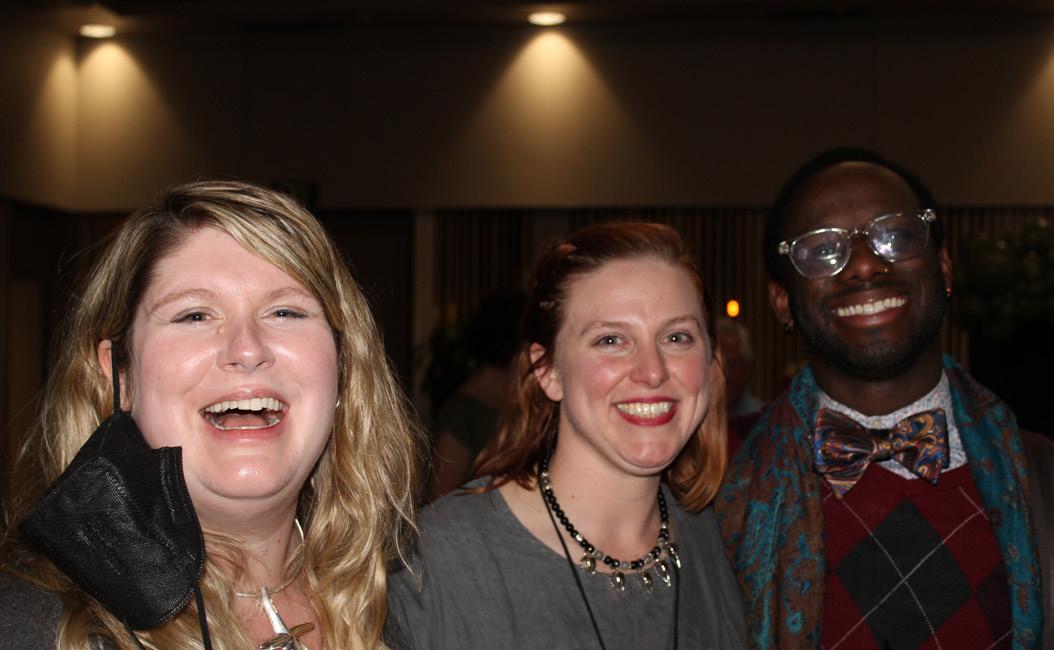
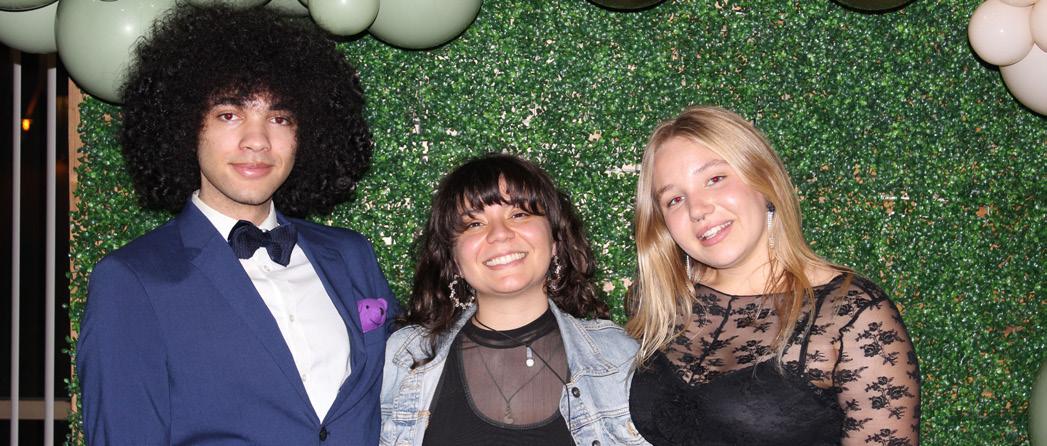
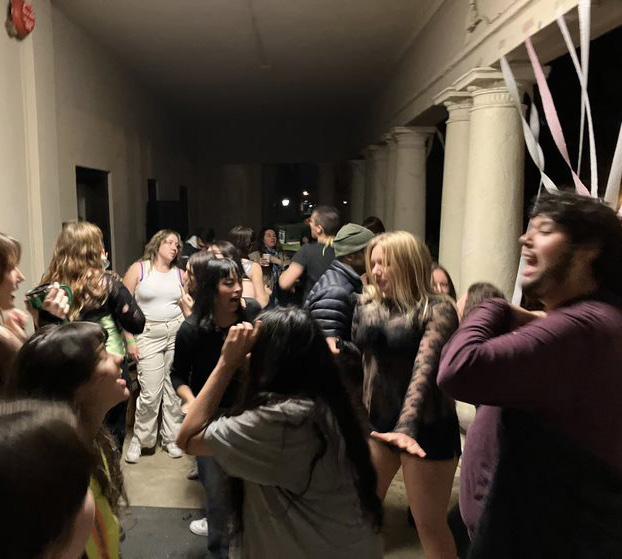
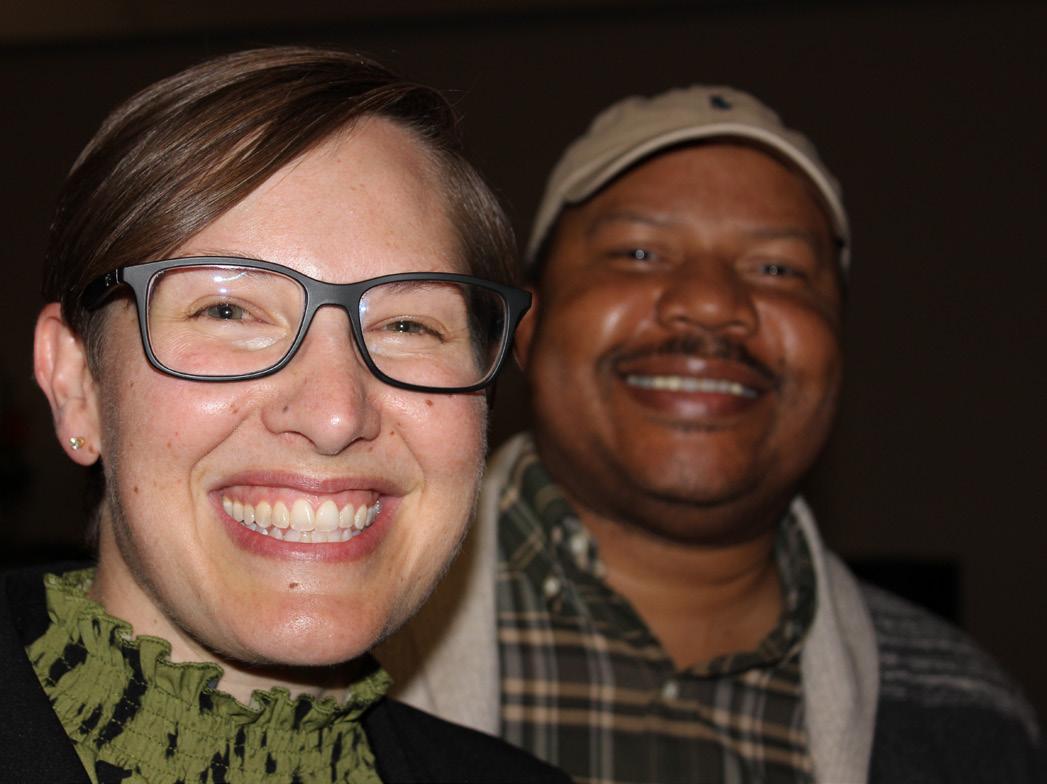
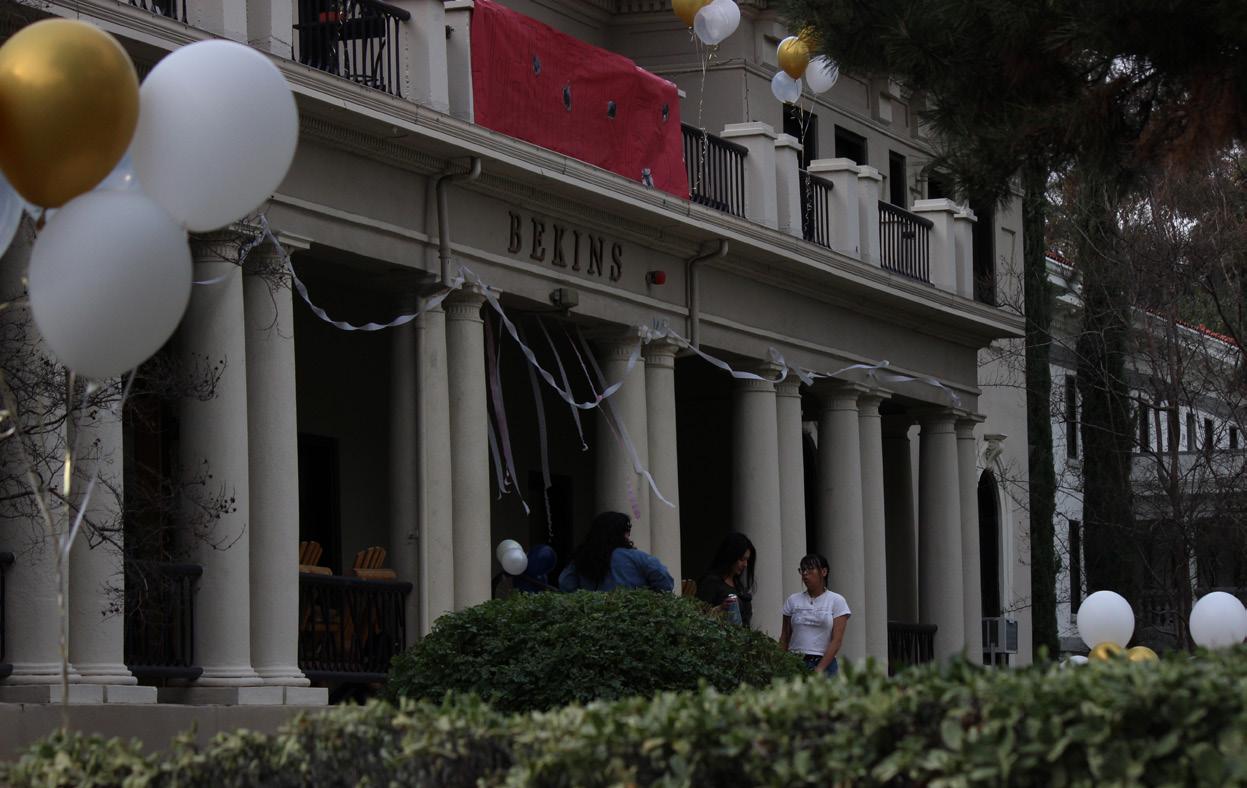
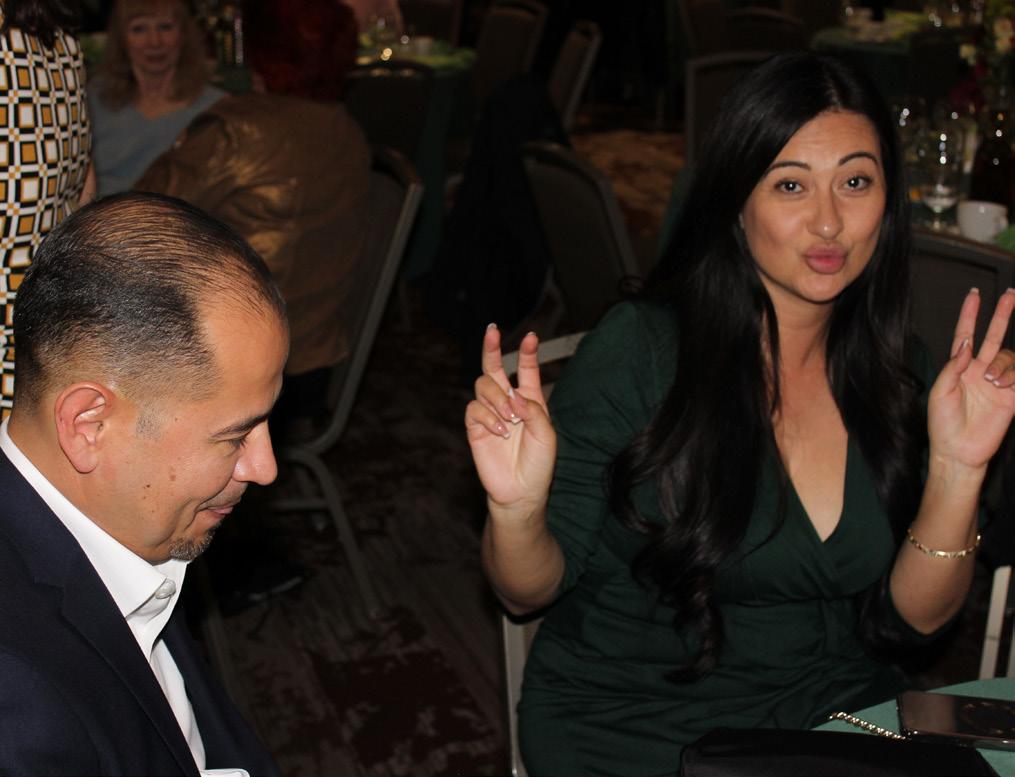
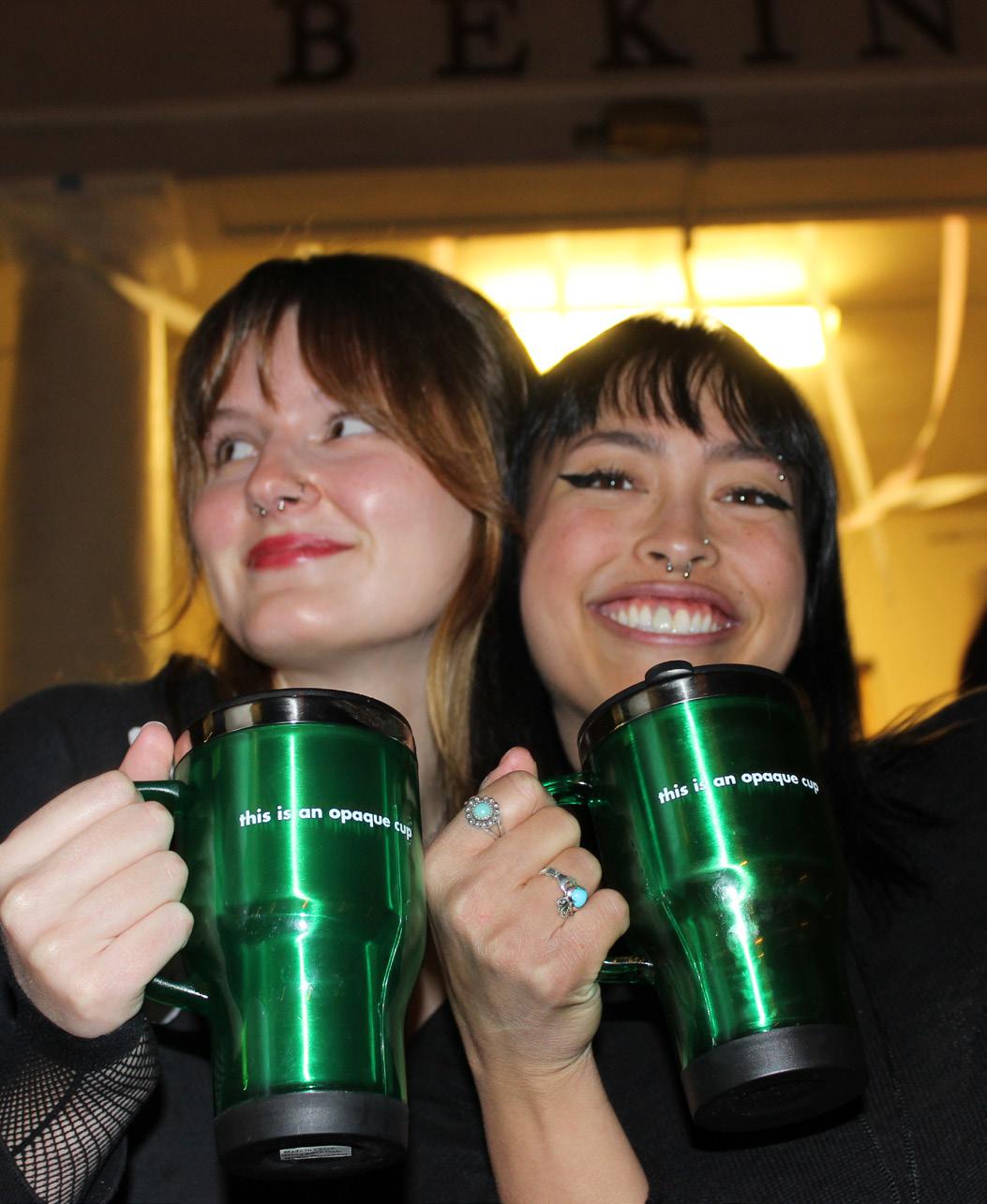
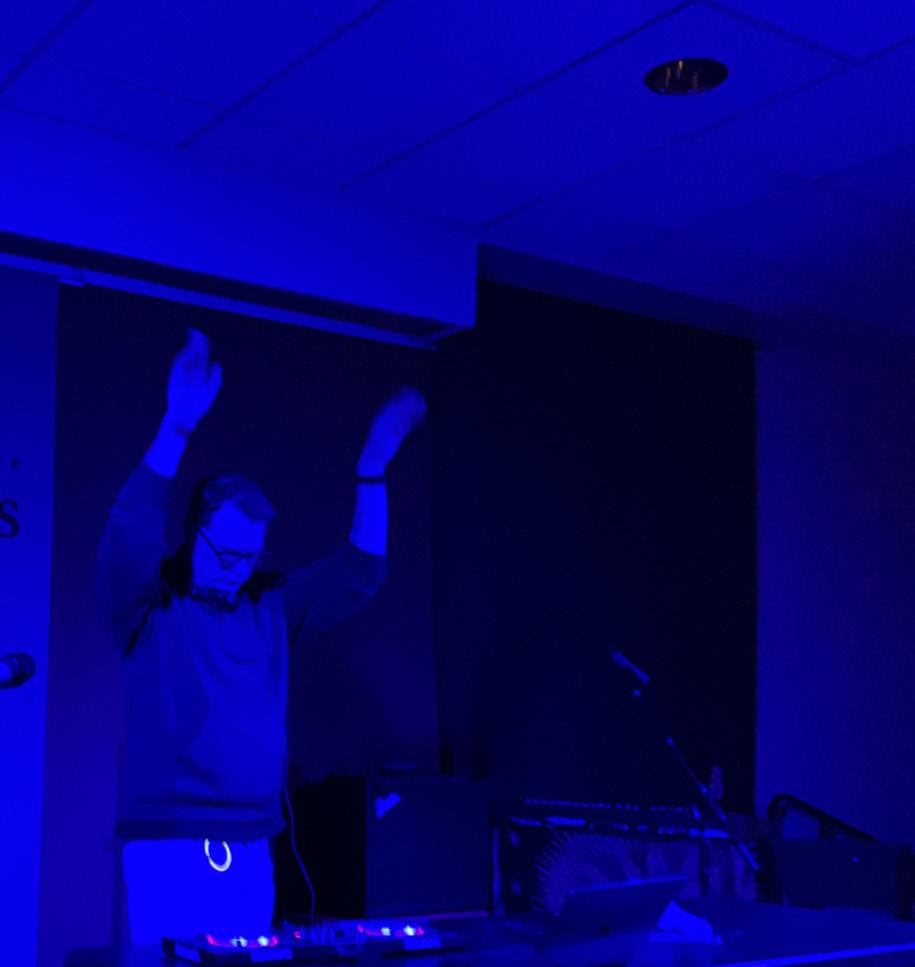
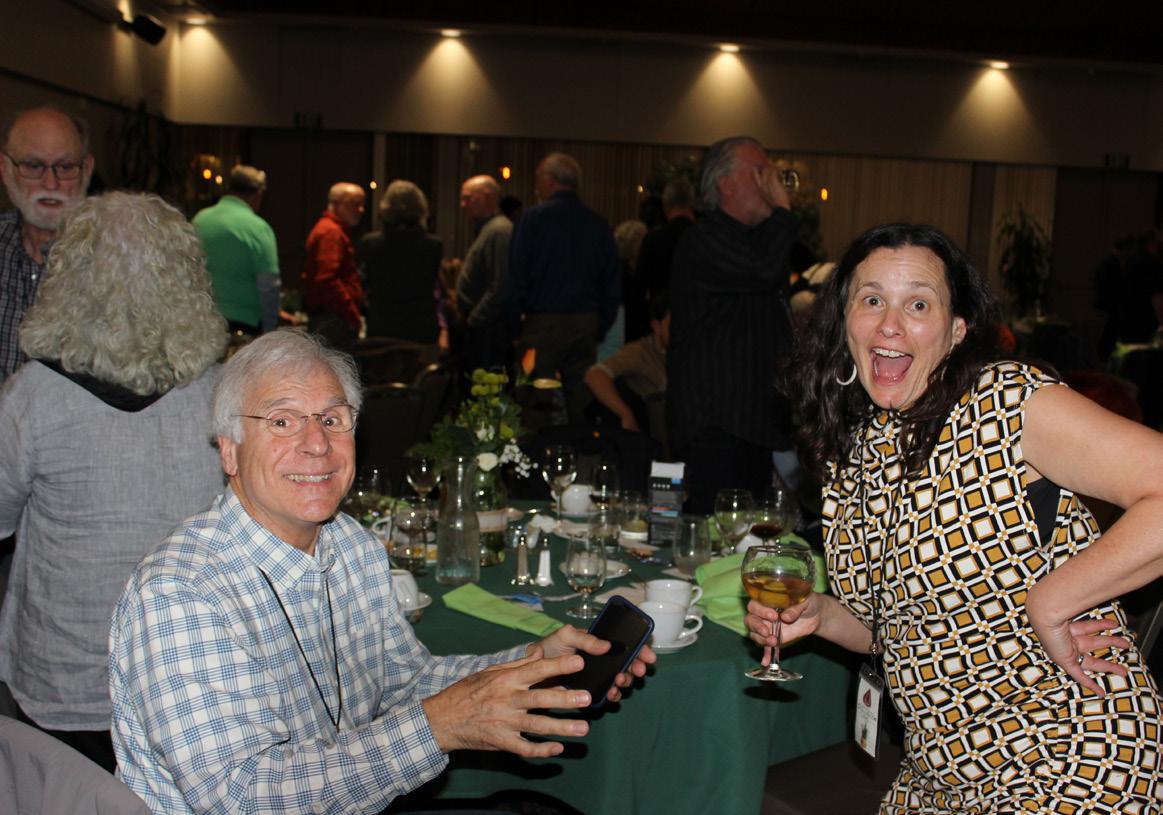
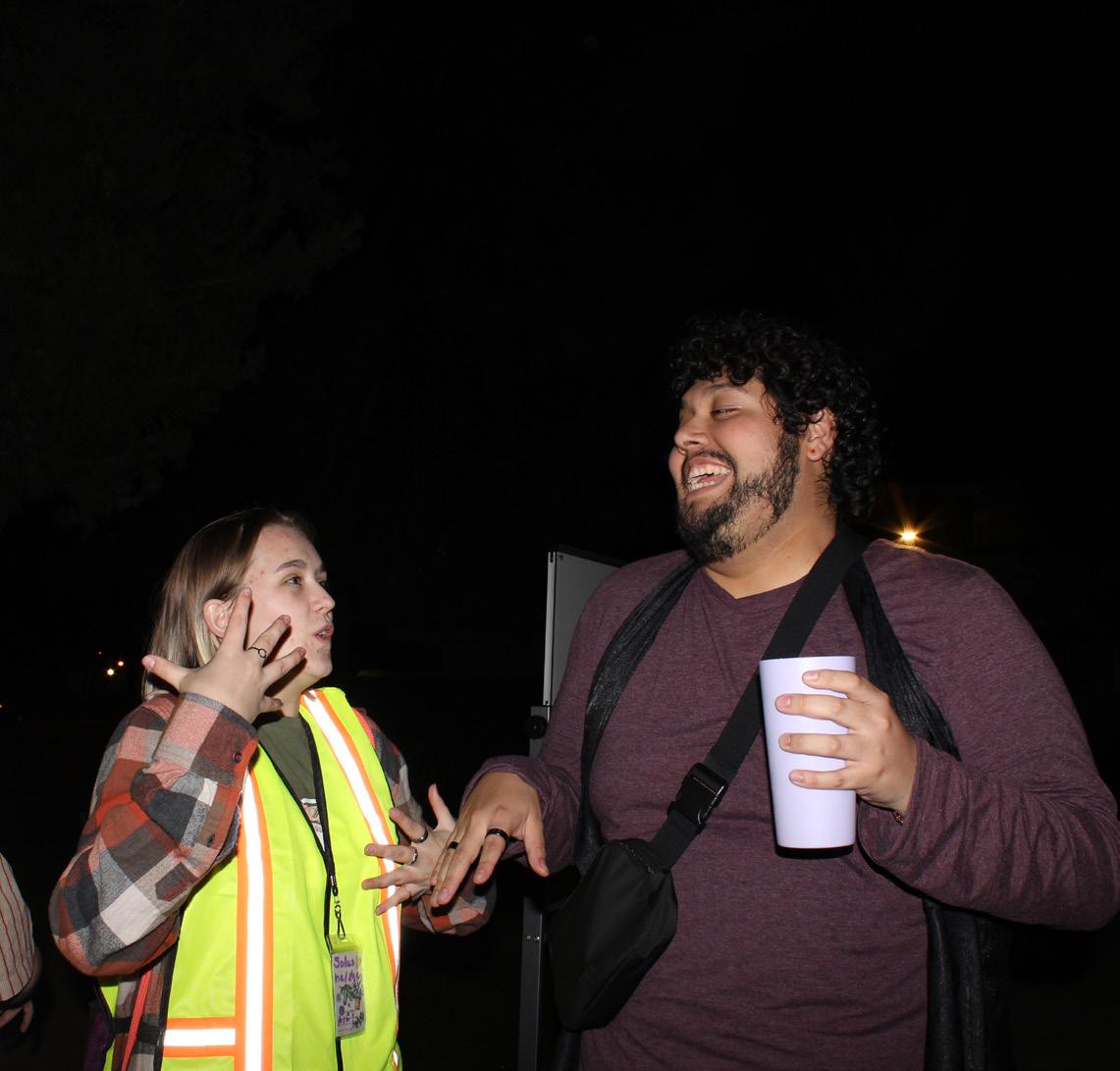
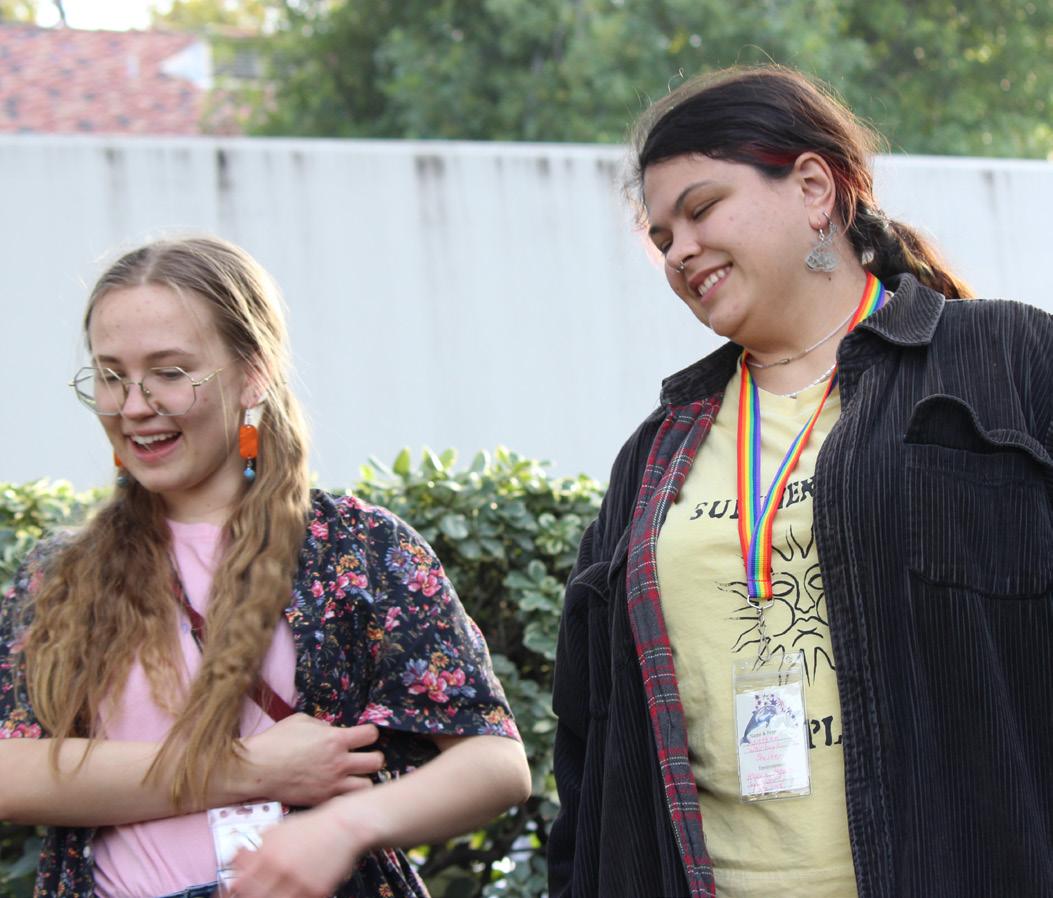
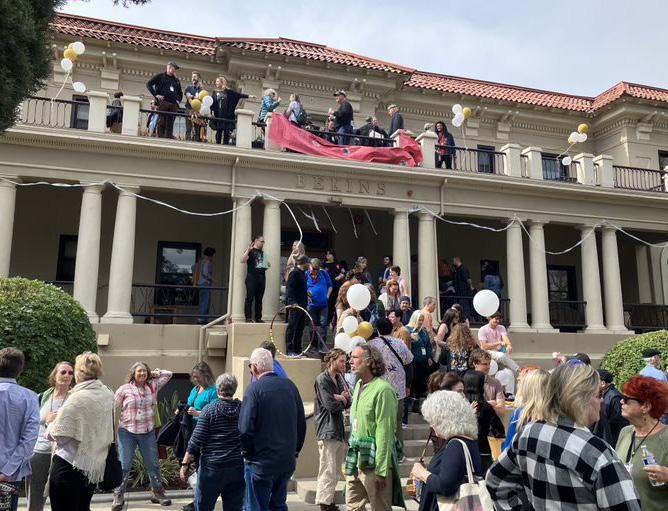
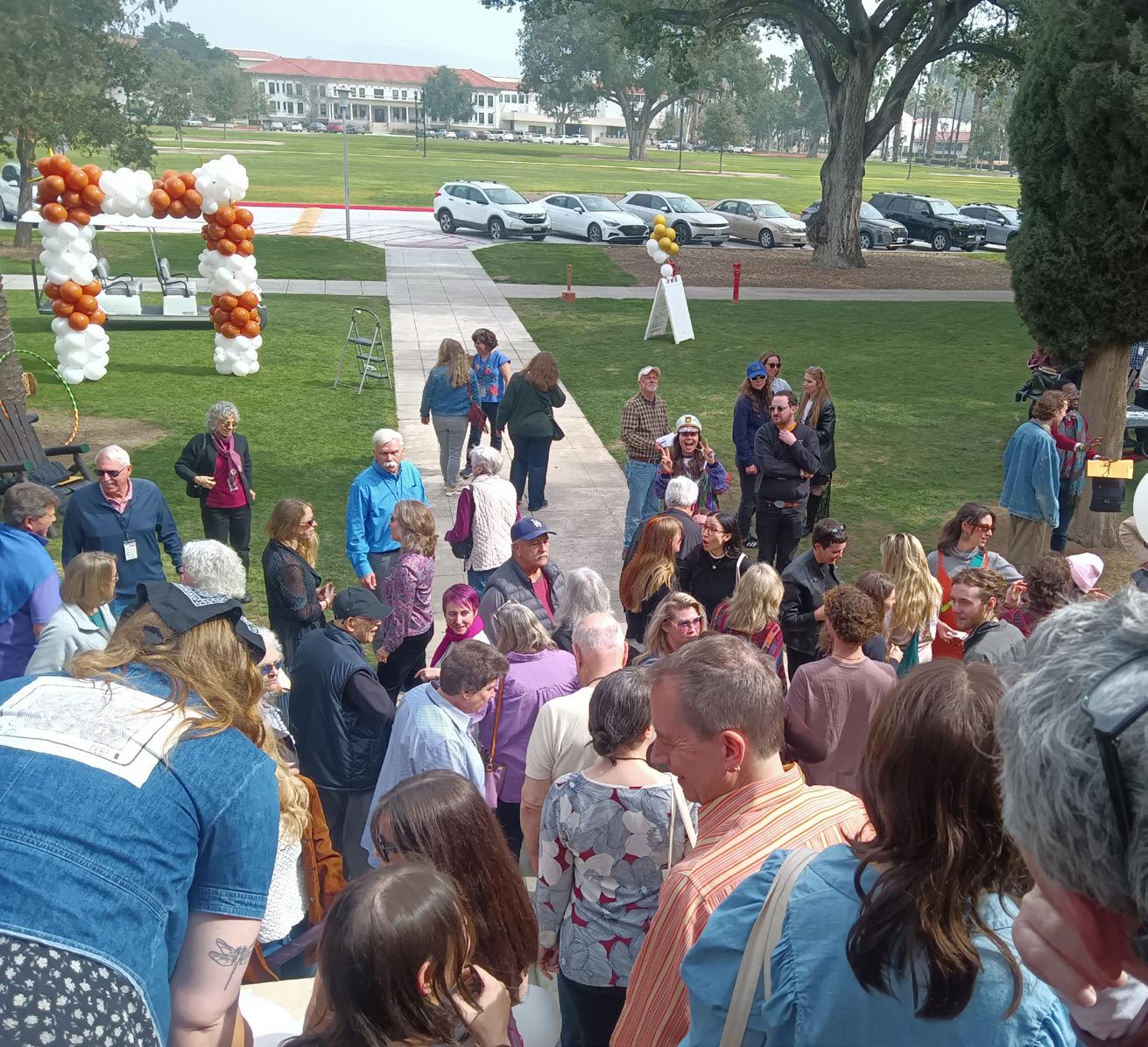
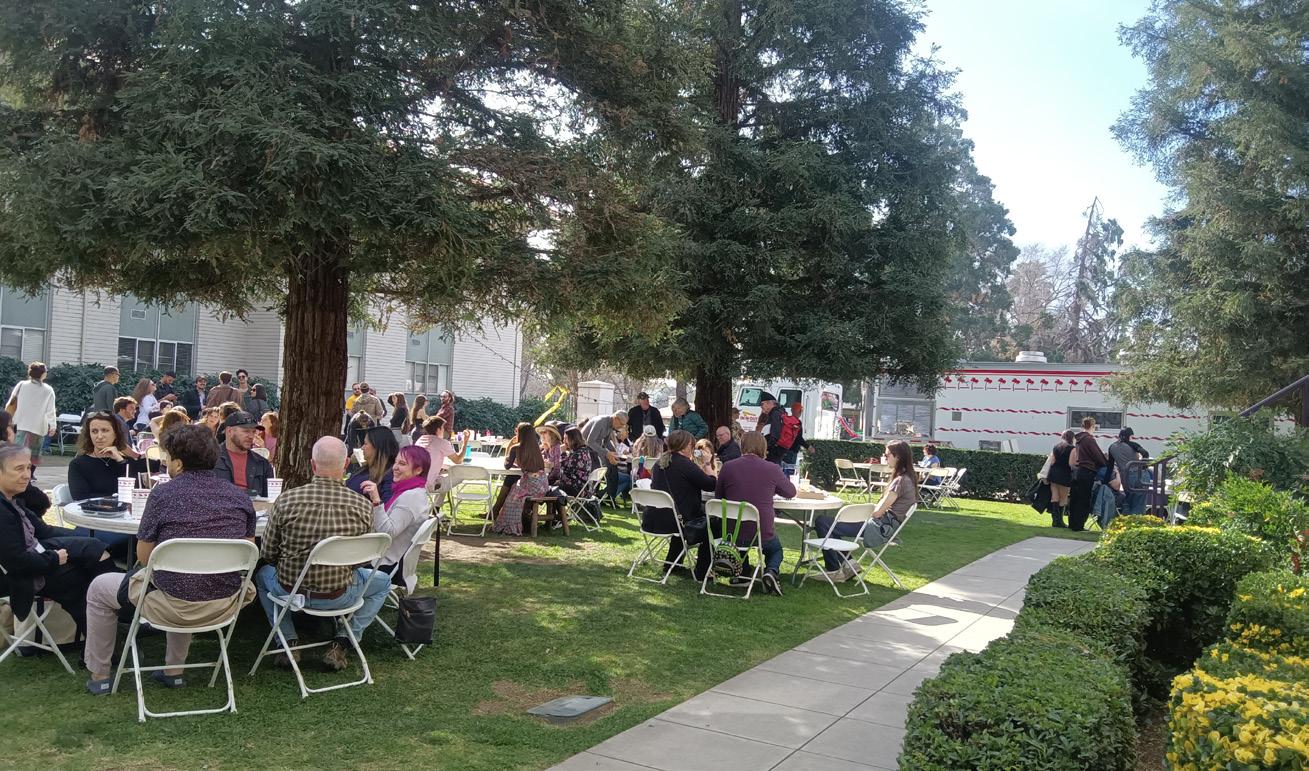
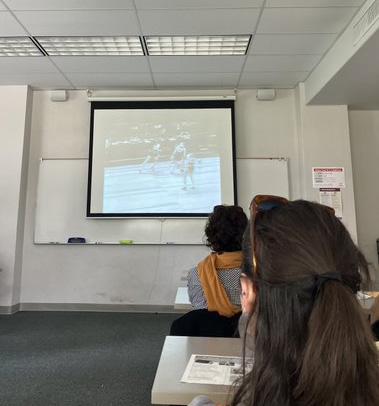
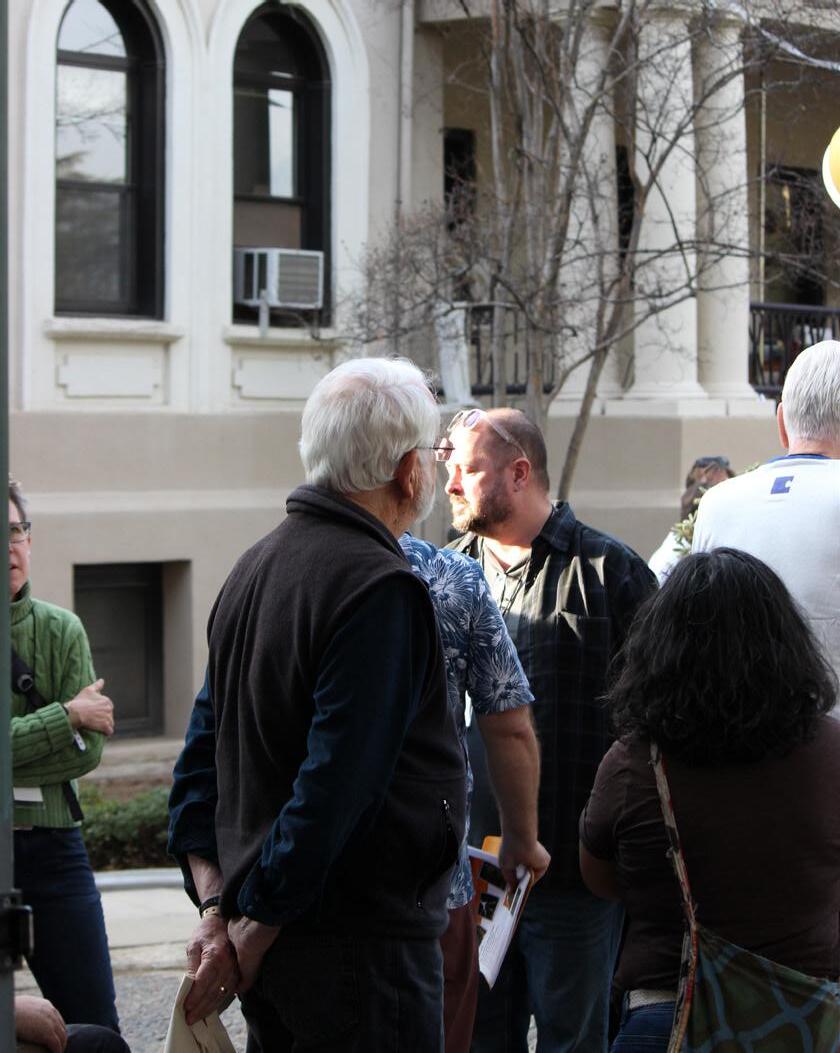
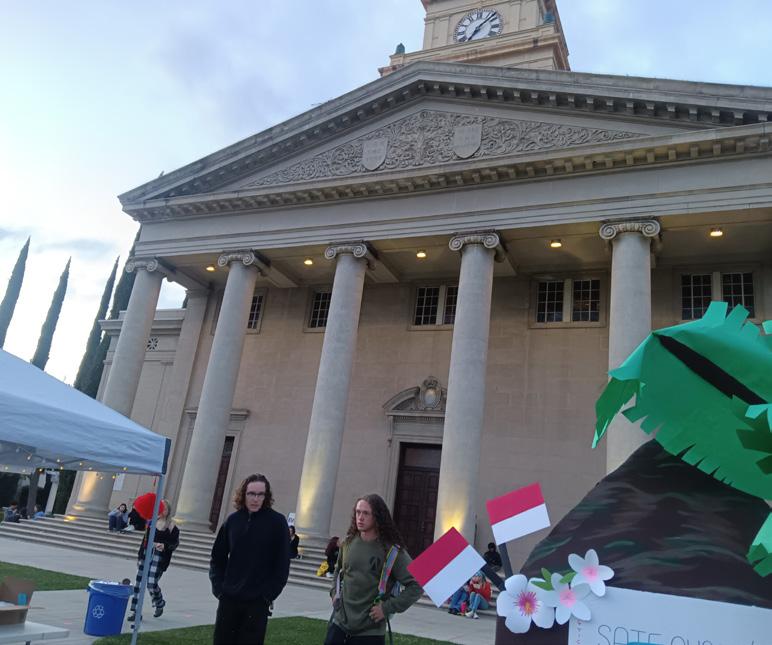
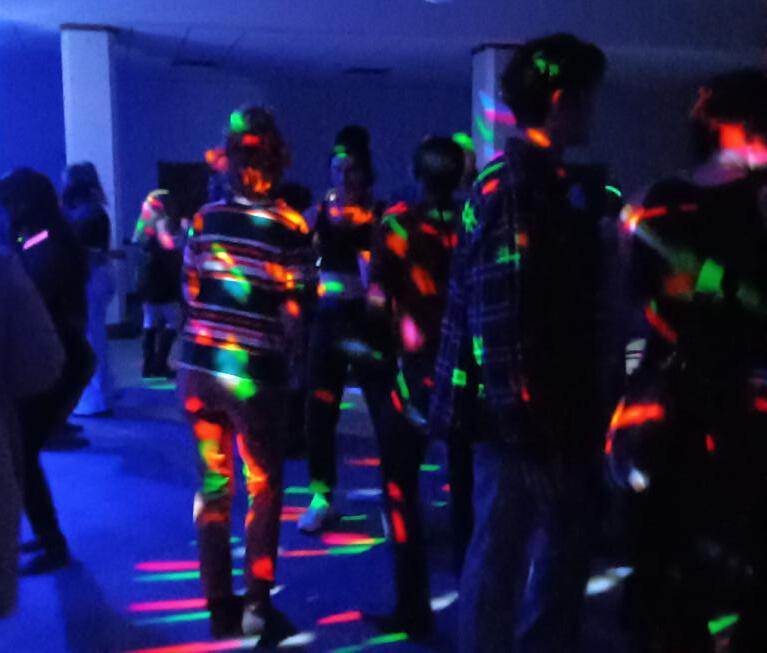
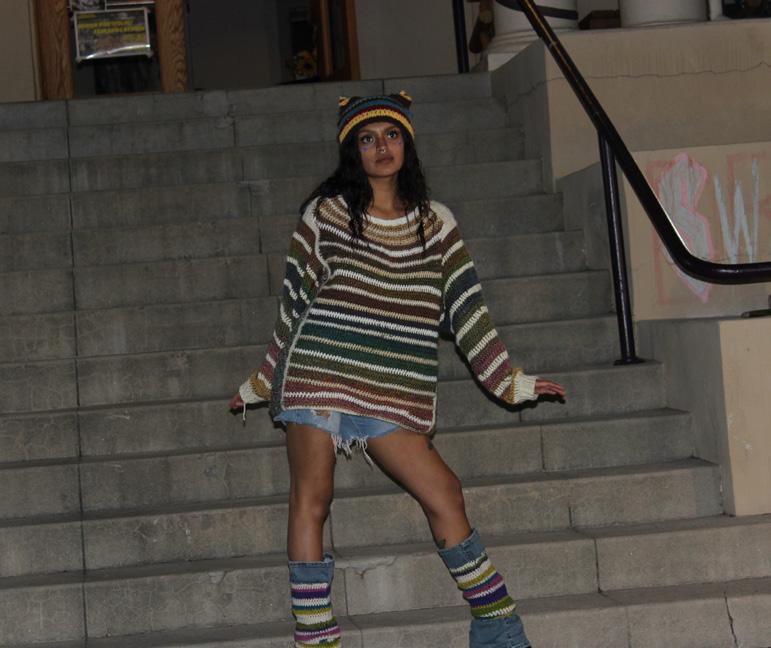
Hi! I’m Mia Lobito, I am a Johnston senior with an emphasis in “Marketing and Media for Social Transformation” and the President of the Asian Student Association. ASA was founded in 2014 to create a safe community on campus for the University’s Asian and Asian American students and their allies. We strive to promote consciousness of different Asian cultures and issues through open meetings, fundraising, advertising, and various events. As President one of my biggest tasks this year was planning our third annual “ASA Night Market.”
ASA Night Market was created to be a celebration of food and culture from across the Asia-Pacific region. Our goal was to try to showcase all the different Asian cultures that exist on campus with representation from Asian-Pacific Islander-Desi Americans as well as international students. This year our event featured representation from China, India, Indonesia, Japan, Korea, Laos, Malaysia, Nepal, Polynesian Voyagers at Redlands, Philippines, Taiwan, Thailand, and Vietnam. Each country created a booth that served three to five street food dishes. After two hours of enjoying delicious food, the night ended with incredible performances that included lion dancers, taiko drumming, hula and singing.
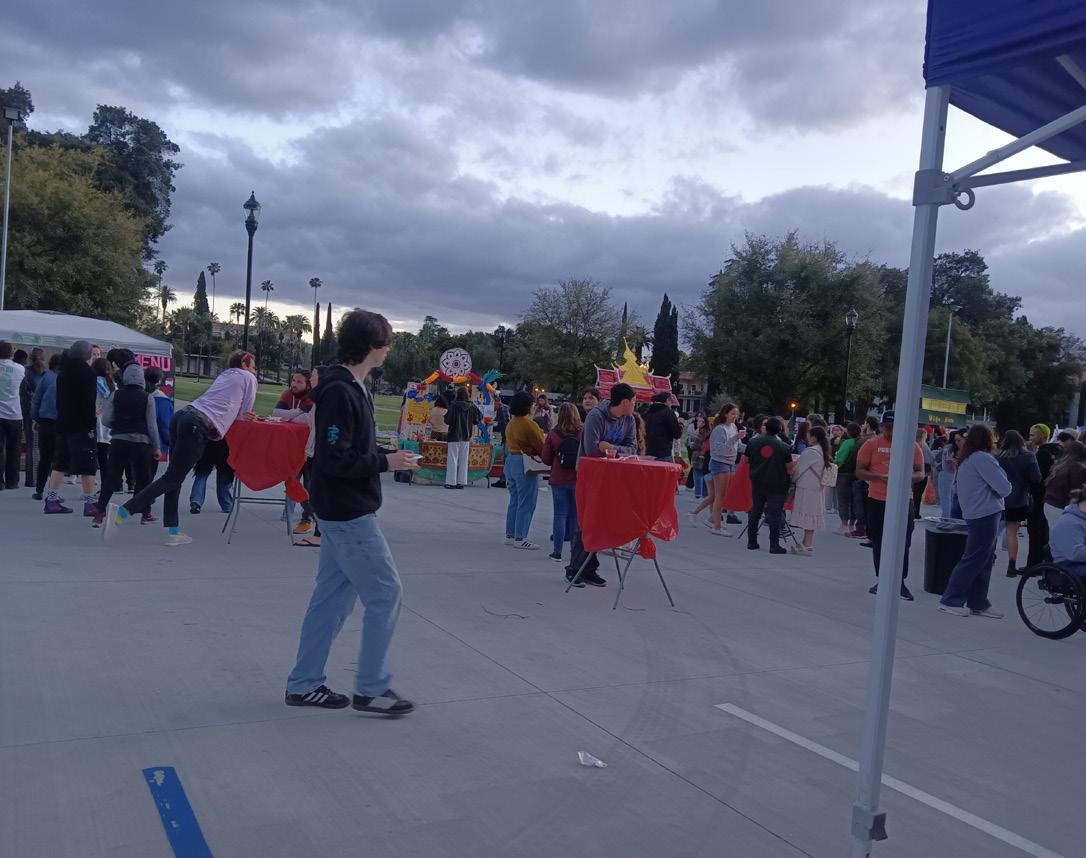
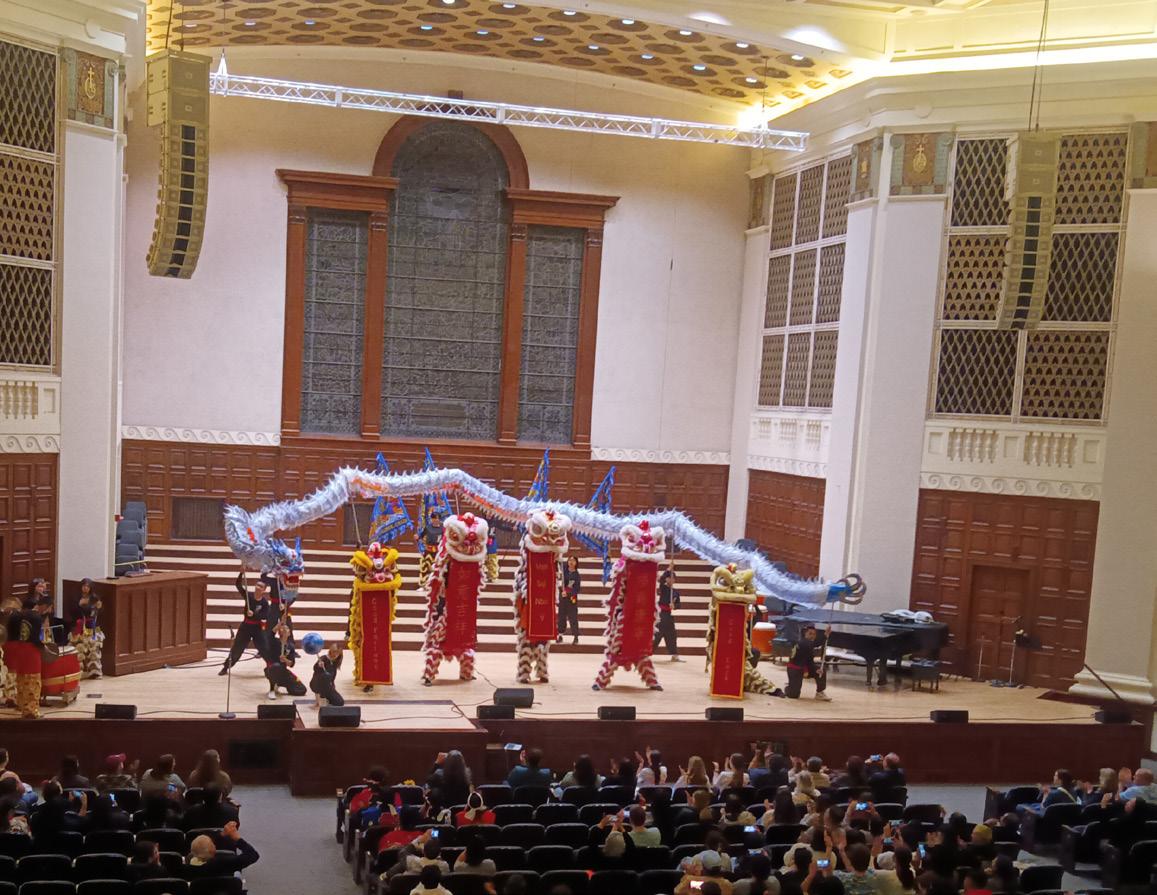
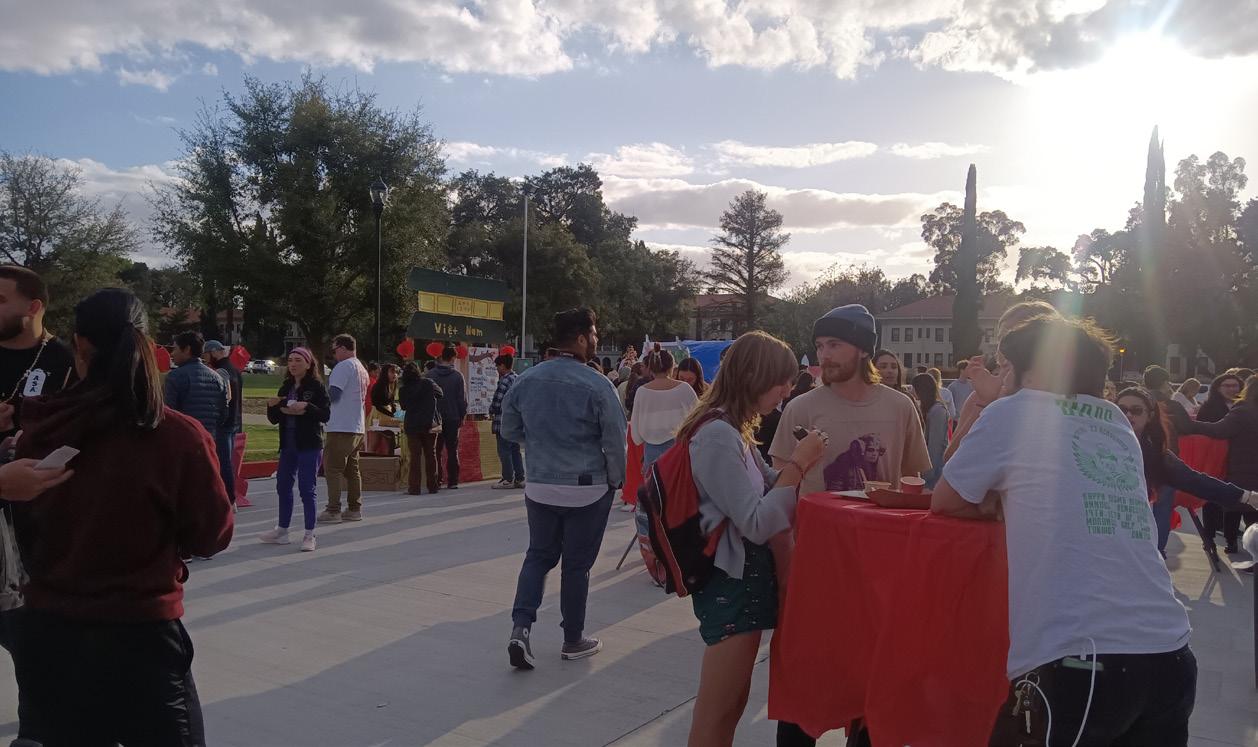
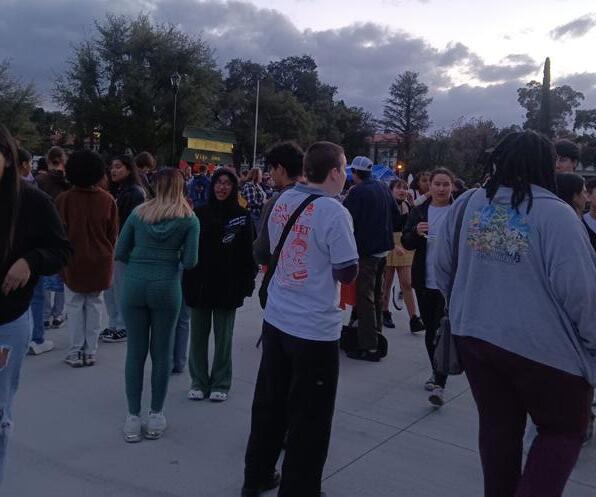
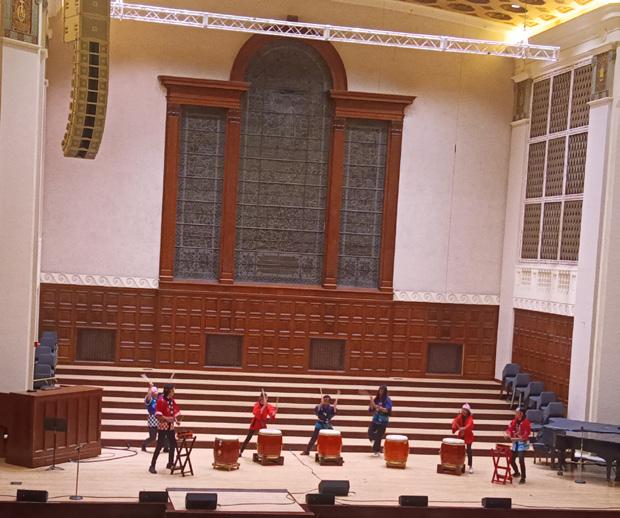
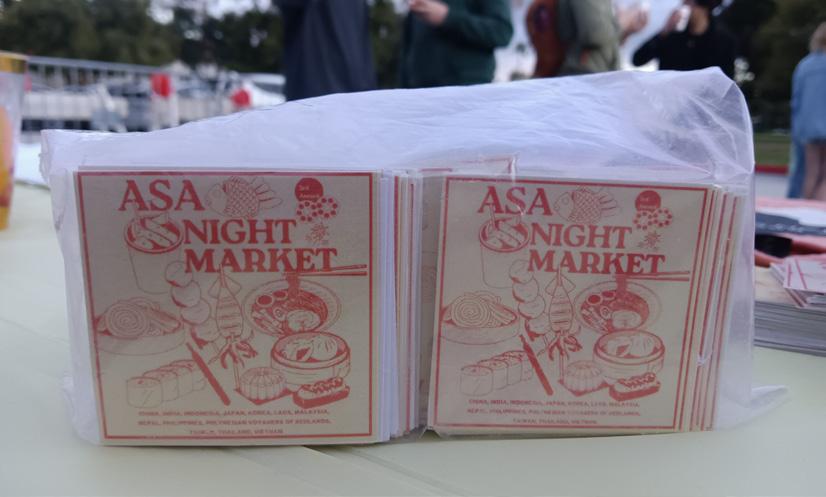
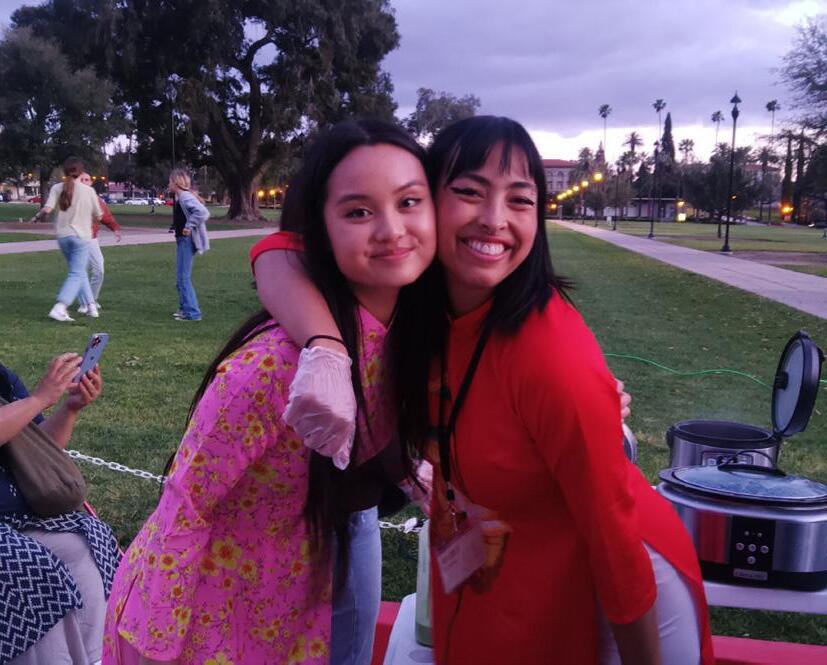
Planning ASA Night Market was not an easy feat. I worked with various organizations on campus including our university’s catering service to secure approval to serve food, event services to construct a layout, and technology and sound services for our audio and visual needs. I reached out to and worked with various academic departments to help secure funding for this event, including Johnston who helped with a majority of our event’s funding. I also was able to work closely with the Indonesian Consulate of LA, to send a traditional Balinese dancer to perform. Despite all the labor that goes into the planning, everything becomes worth it on the day of the event.
For me, one of the most special things about ASA Night Market is that although we are on University grounds, it always feels like we were present at an actual night market in Asia. The energy is chaotic, the music is loud, and most of our Asian and Asian American students and faculty are dressed in their respective cultural wear. While the ASA Night Market allows attendees to experience the different Asian and Pacific Islander cultures, this event carries significant value for the ASA cabinet, our members, and myself. For us, the event allows us to celebrate and appreciate our respective cultures while attending a predominantly white institution. It allows us to feel empowered in our ethnic identity; it allows us to feel seen.
ASA Night Market is the embodiment of our club’s purpose: empowering and educating Asian and Asian American students and allies, showcasing our rich and diverse cultures through educational and engaging avenues.
VINTAGE JOHNSTON: January 25th, 2025
Come to celebrate Johnston & support current students. All proceeds from Vintage Johnston go to the Johnston student project fund.
RENEWAL 60: February 16-18, 2029
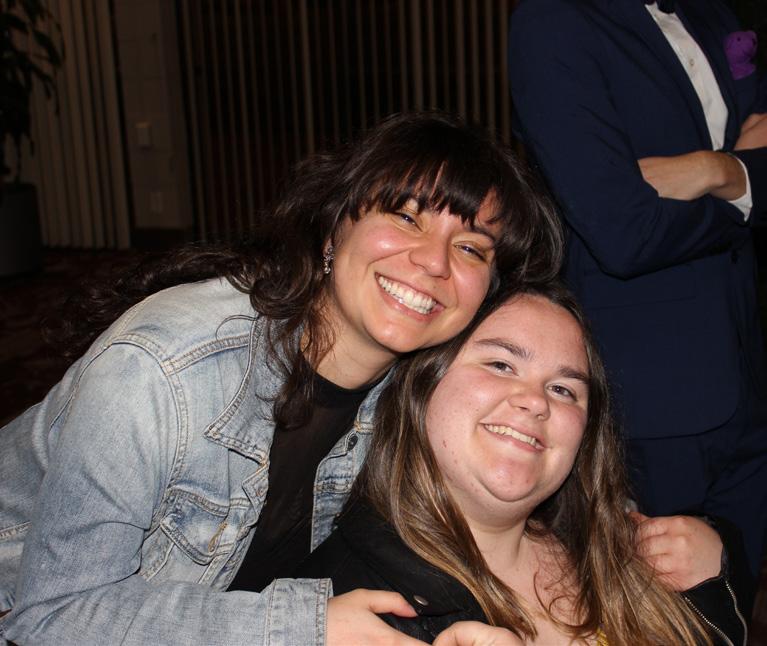
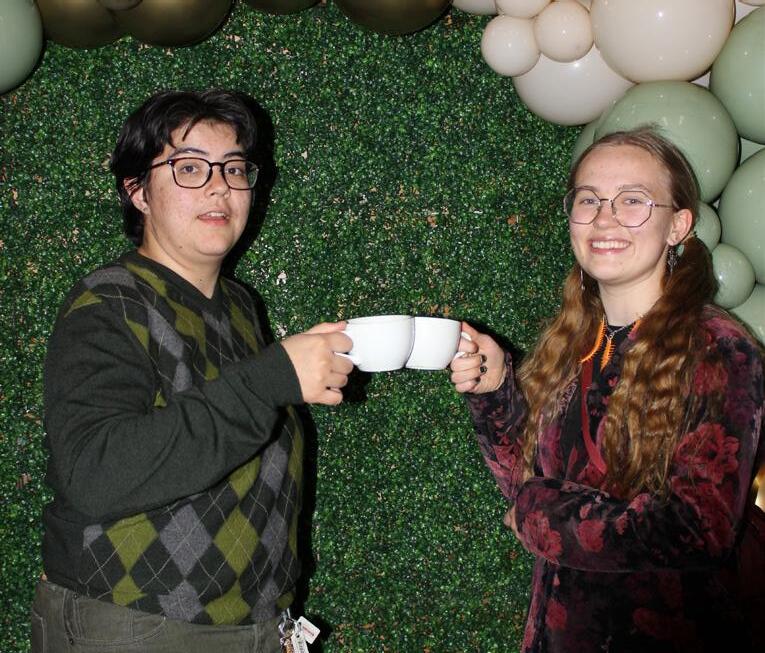
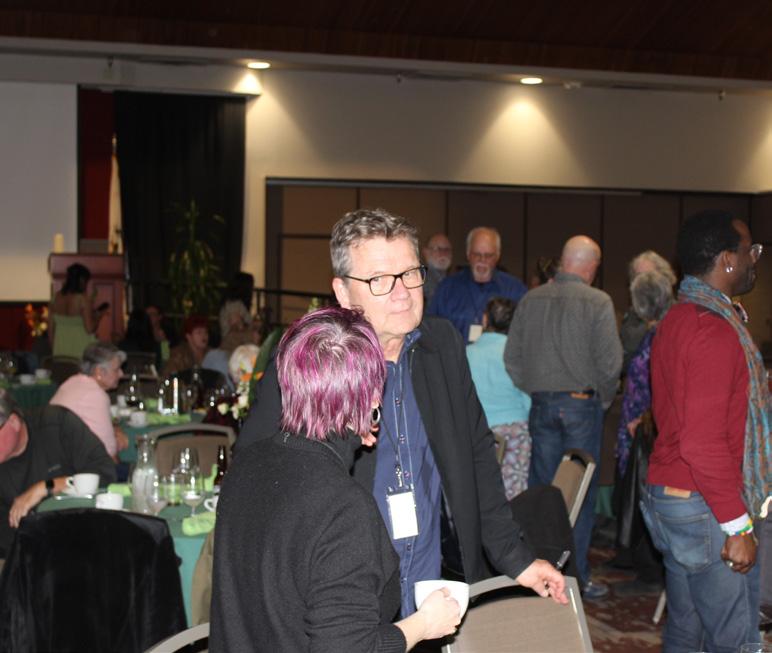
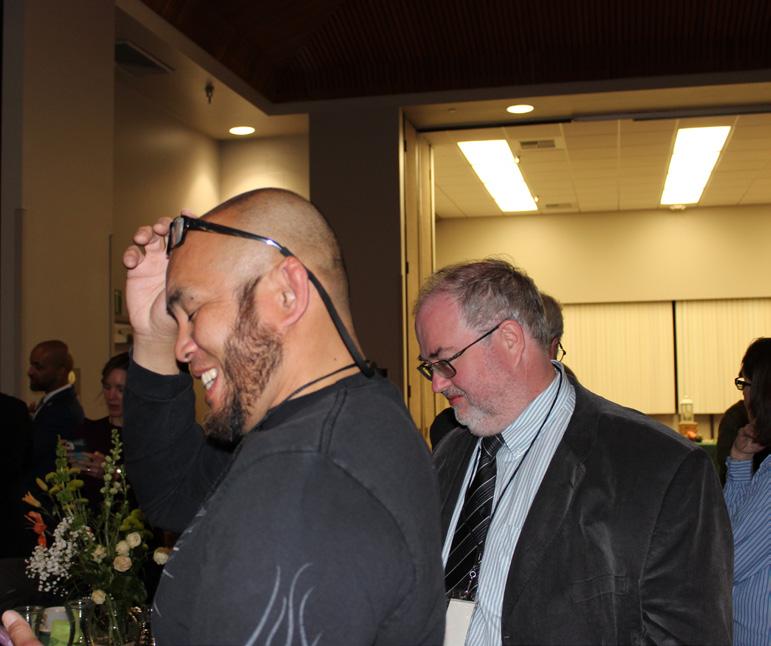
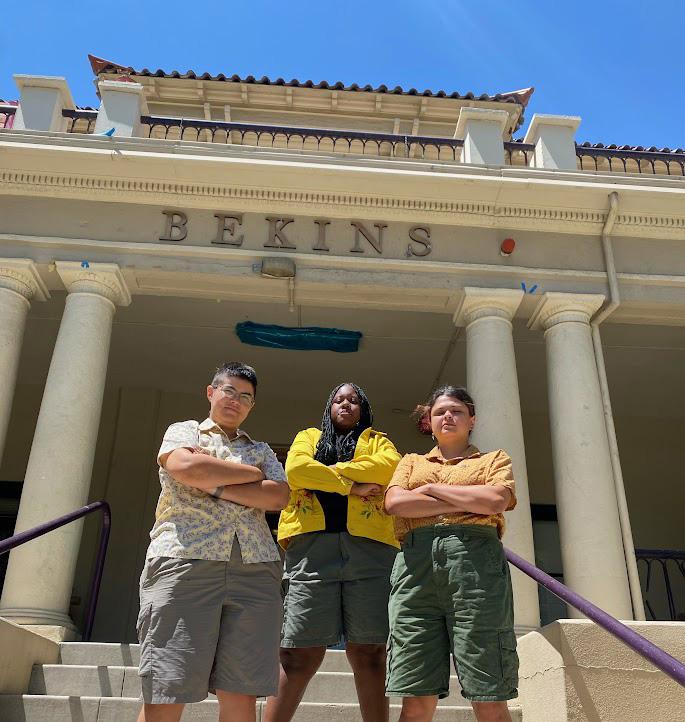
Who better to identify potential Johnston students than alumni? We want to find more students who seek an individualized and integrated college experience, who value communiy and collaboration as well as academics, and whoare passionate about their interests. In short, people like YOU.
If you know of any high school students who might be interested in a Johnston-style education, please encourage them to visit Johnston.
Publisher: Tim Seiber
Editor & Designer: Sadie Forkner
Contributors: Tim Seiber, Jeanette Guerra, Harper Obstfeld, Anathea Woirhaye, Sadie Forkner, Kelly Hankin, Julie Townsend, Mia Lobito, Sofia Balingit, Emily Hernandez, Izzy Jones, Delia Wahby, Yvette Gerber
Photo Wizardry: Angela Bozman, Emily Hernandez, Anathea Woirhaye, Kelly Hankin, Sofia Balingit, Izzy Jones, Sadie Forkner
Technical Guidance & Moral Support: Maggie Ruopp, Kate Chase, Kelly Hankin, Tim Seiber
Thanks to the UoR Marketing department for the use of the Renewal group photo for the front cover.
The Spring 2024 issue of the Coz McNooz was completed through Johnston’s Project Development course, which was facilitated by Kelly Hankin